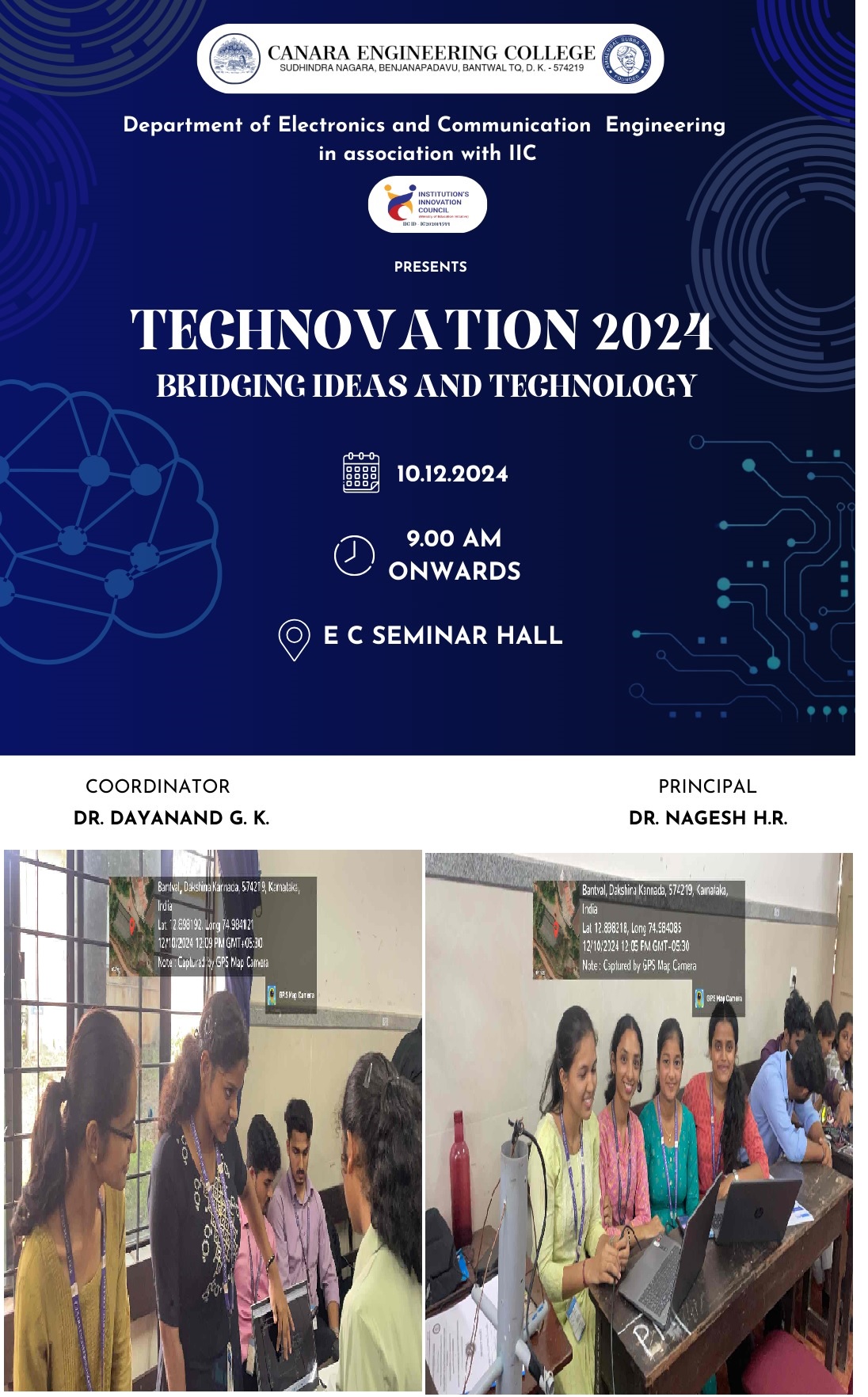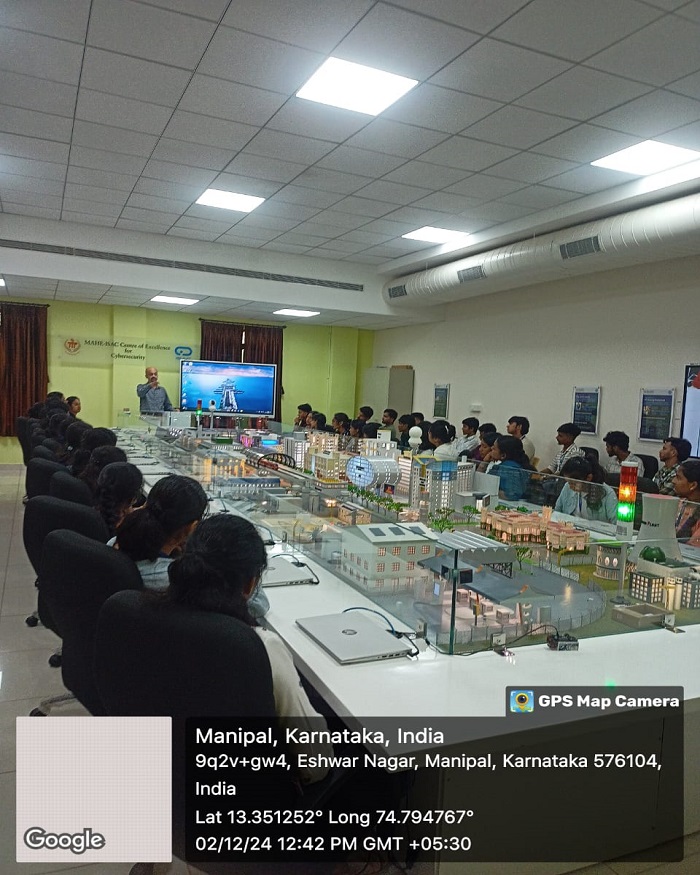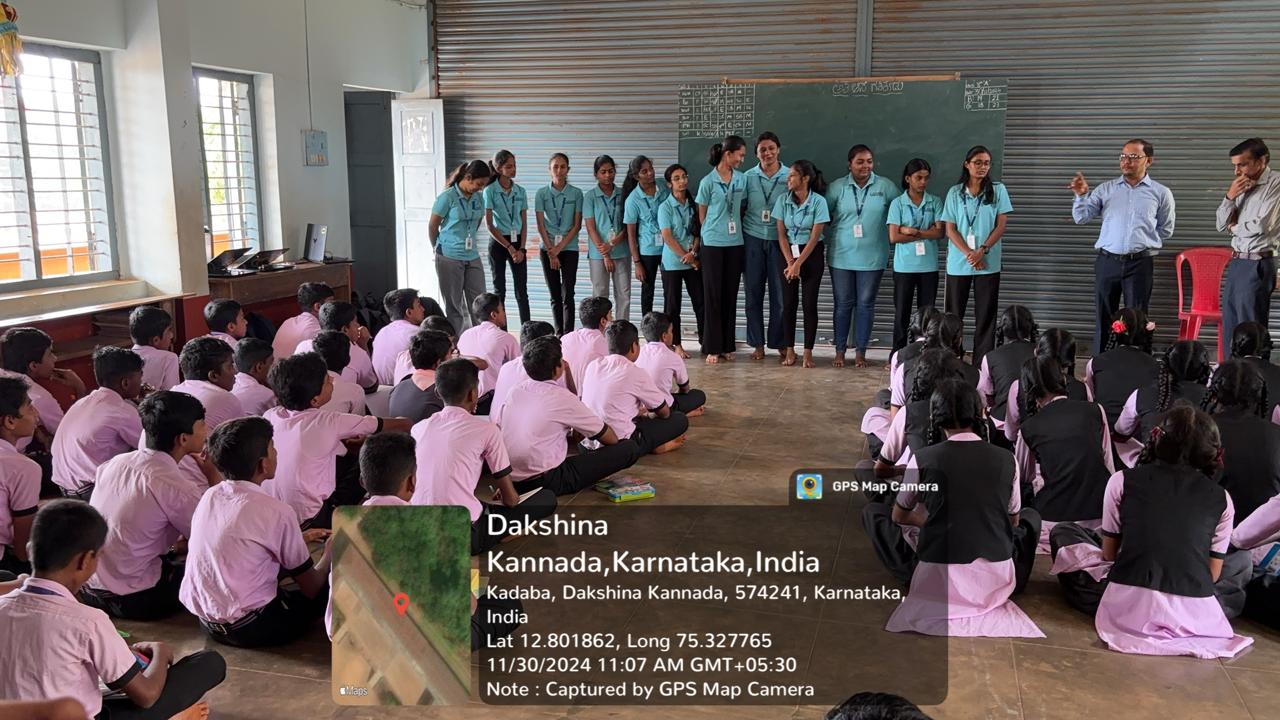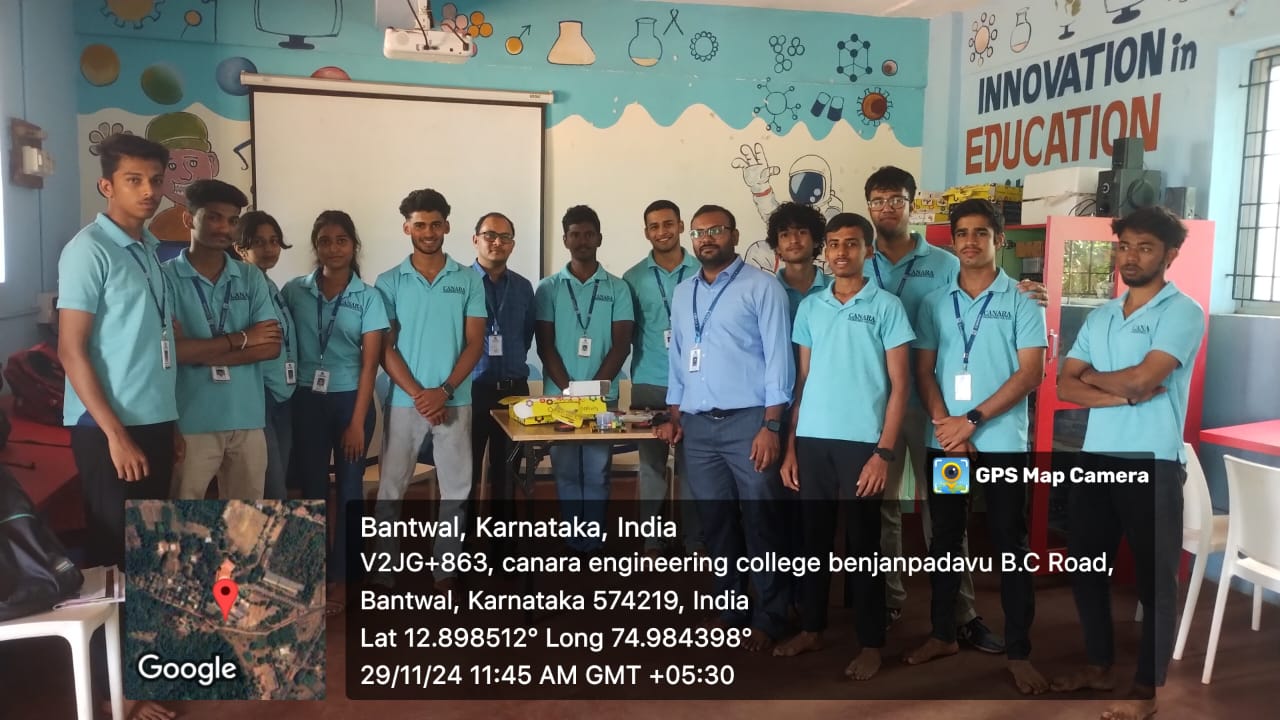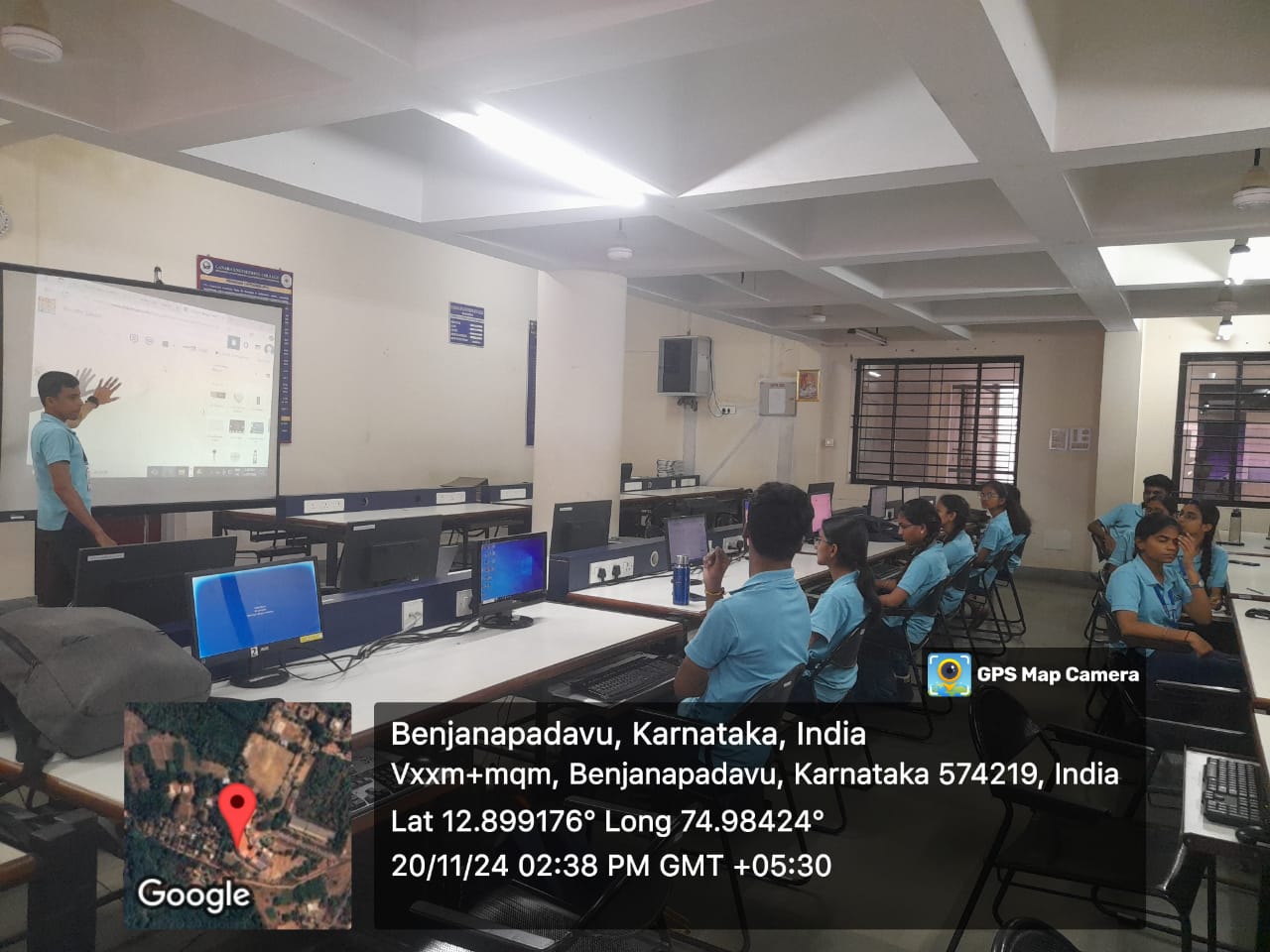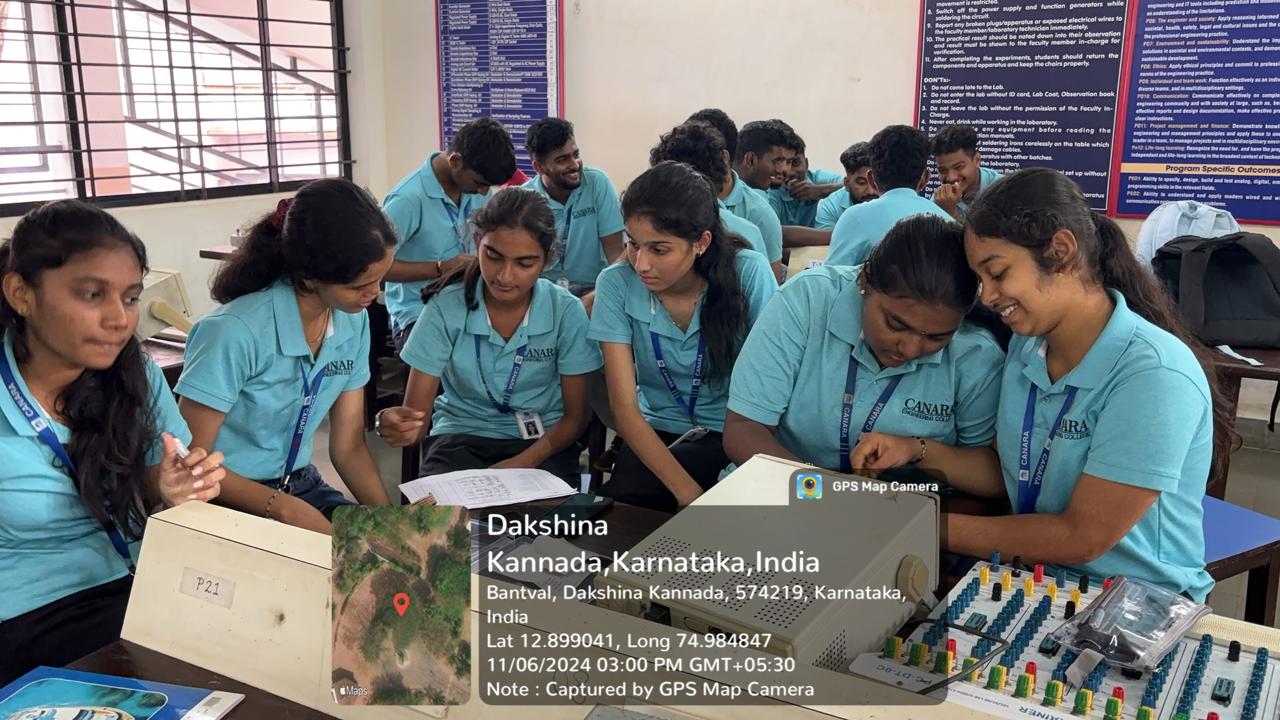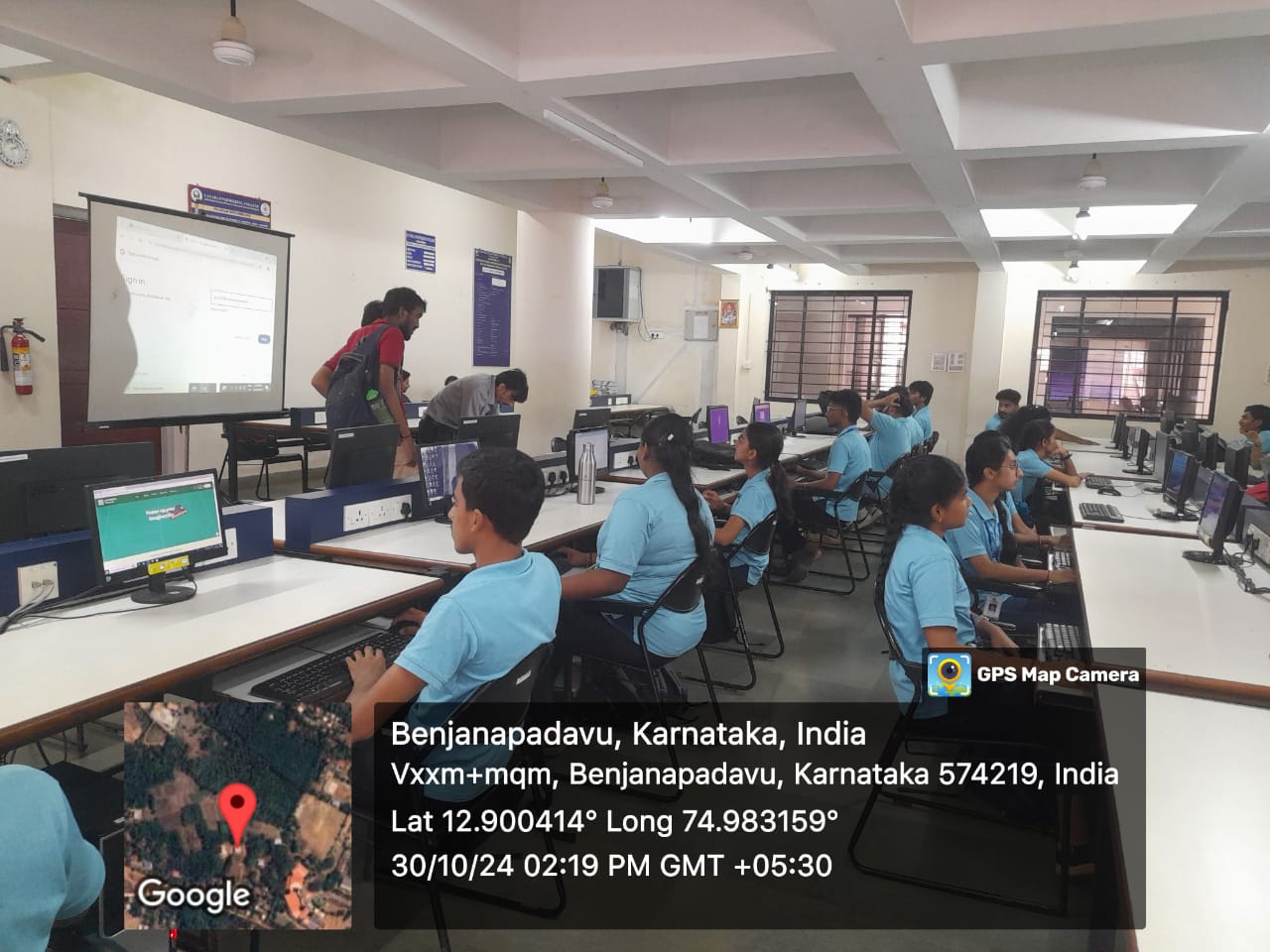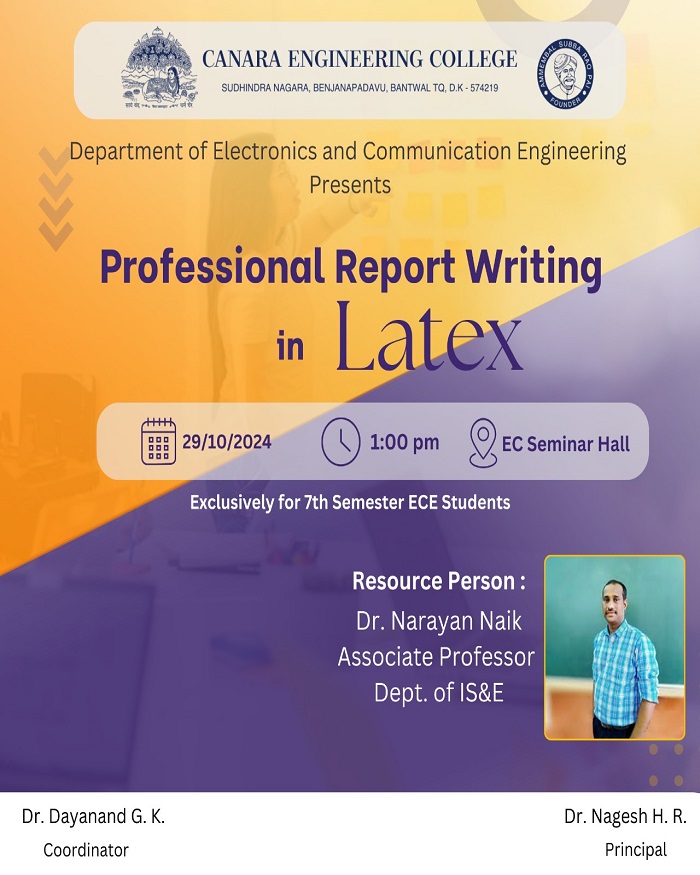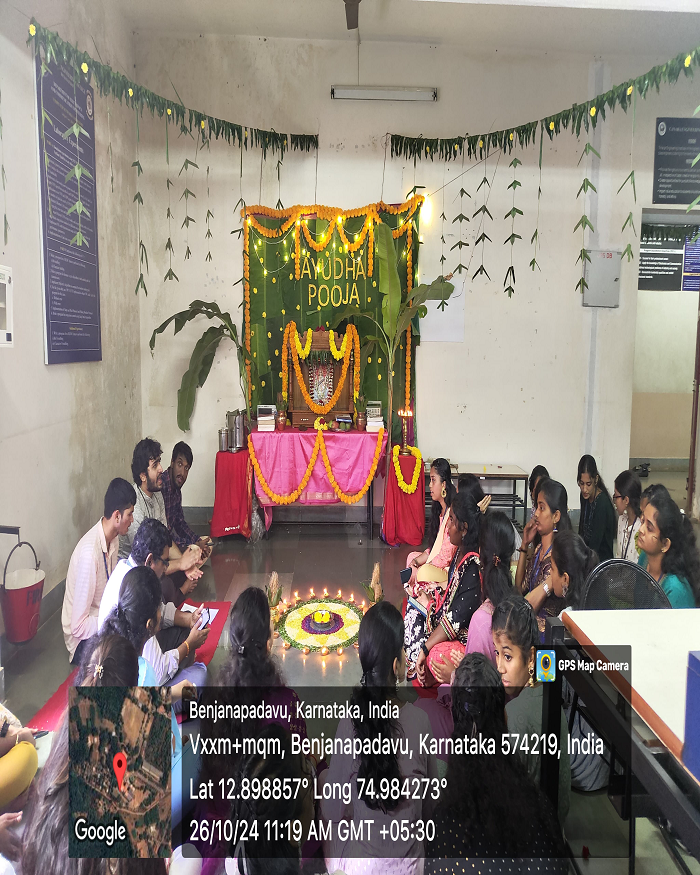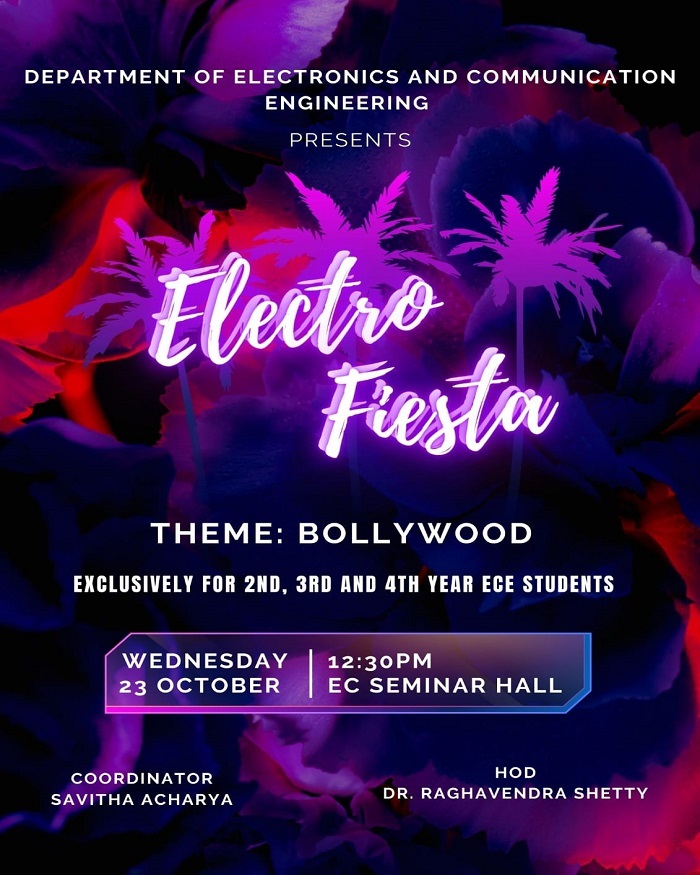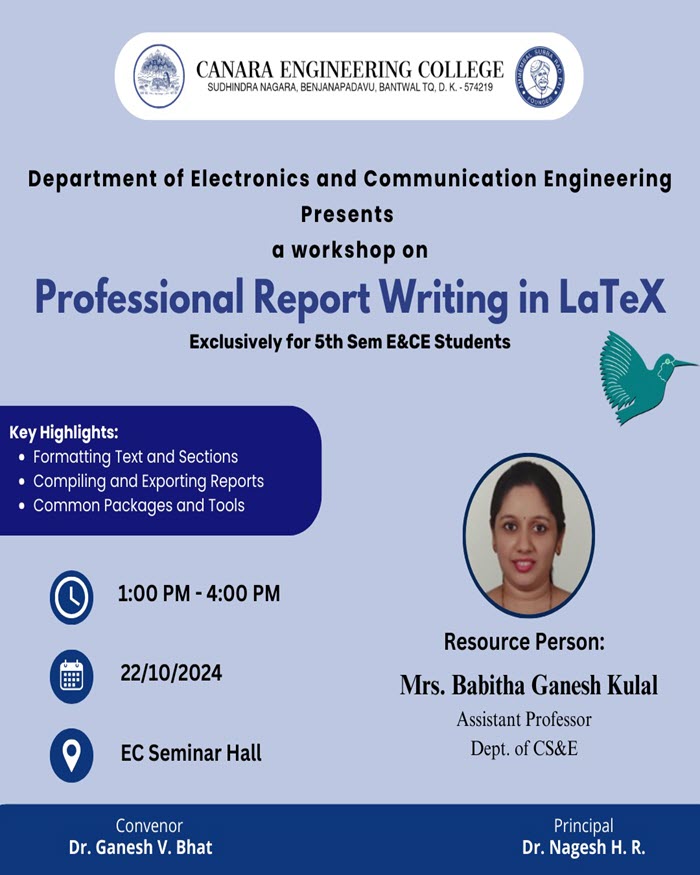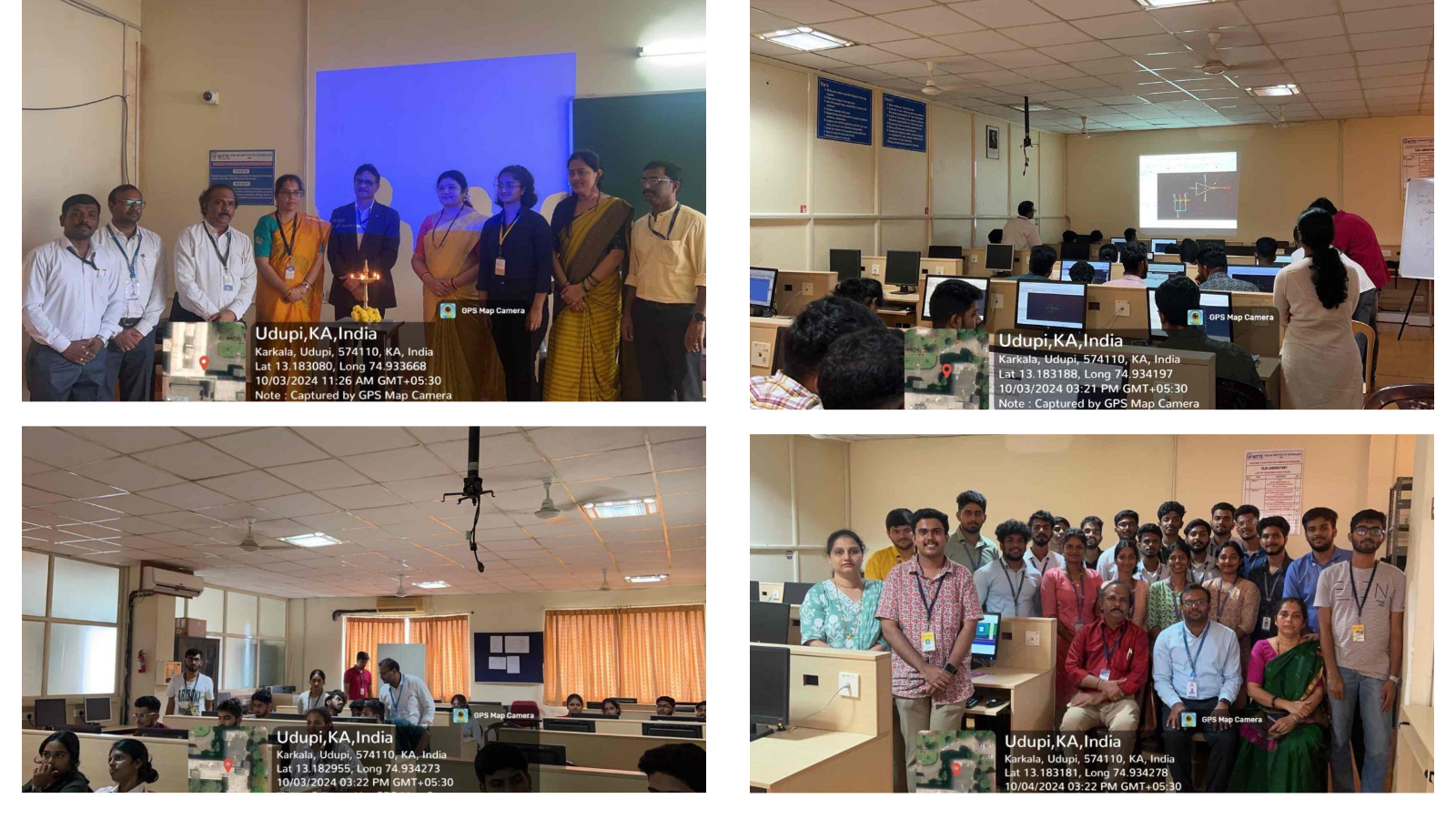Accredited By NBA (till 30/06/2025)
DEPARTMENT VISION
The Department of Electronics and Communication Engineering strives to be a centre of repute by imparting quality education to produce globally competent graduates with human values.
DEPARTMENT MISSION
- Create conducive environment for overall development of students.
- Equip the students with technical skills to bridge the gap between academia and industry
ABOUT THE DEPARTMENT
Electronics and Communication Engineering (ECE) is a dynamic field which encompasses the acquisition, communication, manipulation, and analysis of Information/Signals. This discipline spans a wide range of applications from everyday electronics to complex systems used in industries, medical devices, and beyond. EC has experienced rapid technological growth, and its impact is evident across numerous domains of engineering.
The comprehensive curriculum of ECE provides students with abundant career opportunities, not only in Electronics and Communication but also in allied fields such as Instrumentation, Computer Engineering, Aeronautics, Mechatronics, and Biomedical Engineering. Our faculty members are highly experienced and dedicated to guiding students toward successful careers, advanced studies, and research activities. They have contributed significantly to international journals and attended numerous professional development workshops.
The Department of ECE at Canara Engineering College is committed in providing state-of-the-art infrastructure with cutting-edge equipment and software tools, supported by dedicated technical staff. The department has well-equipped laboratories, including those for research and industrial projects, and maintains a close interaction with alumni to continuously enhance our curriculum and technical activities. We conduct numerous core technical workshops, expert lectures, industrial visits, and internship programs to keep our students updated with industry needs and trends.
Our commitment is to provide quality education through innovative teaching and learning processes, modern facilities, and a supportive academic environment.
Some of the Key Practices of Department Include
- Student-centric teaching and learning.
- Extensive use of educational software and multimedia tools.
- Value addition programs to enhance student skills.
- Encouragement for participation in technical events and competitions.
- Industry-defined projects for final-year students.
- Regular workshops on communication skills and personality development.
- Mock interview sessions by industry and academic experts.
- Empowering students to develop lifelong learning skills.
- Continuous updates on career options and market trends.
- Assisting students in developing job search strategies.
- Upgrading student skill sets to meet industry expectations.
- Providing individual counseling to help students set and achieve academic and career goals.
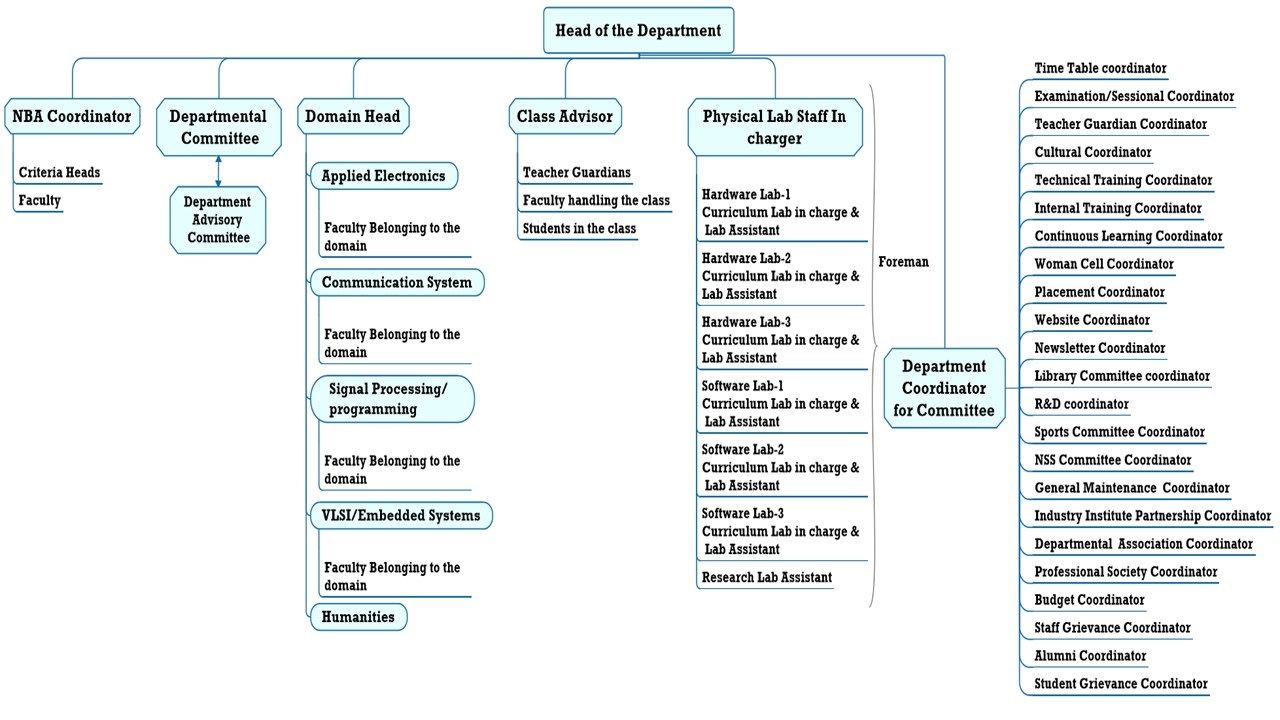
FROM THE DESK OF DEPARTMENT HEAD
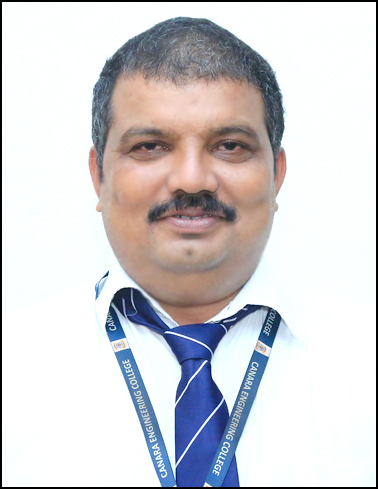
"The roots below the earth claim no rewards for making the branches fruitful."- Rabindranath Tagore
Welcome to the department of Electronics & Communication Engineering at Canara Engineering
College. The Department was established in the year 2001 with the aim of providing leadership in
the field of Electronics & Communication Engineering. This department has been accredited twice
at 2015 and 2019 by National Board of accreditation.
Our mission is to develop innovative teaching and learning pedagogies to help the students to
conquer new frontiers. Students are trained to work in multidisciplinary teams and motivates both
co-curricular and extracurricular activities, for the overall development of its students. The
department encourages the students to actively carry out their projects across various areas of
Electronics and Communication and to develop their technical and research skills by attending
various workshops, conferences, competitions, etc. We have a team of well qualified, experienced,
and committed staff members. The Department of ECE has a unique blend of quality conscious
staff members with a strong sense of ethical and professional responsibility.
The department has excellent lab facilities which are being upgraded from time to time with
cutting edge technology tools. Equal importance is given to both hardware and software labs.
The department organizes several technical and nontechnical events to prepare the
students to fit into industries. The department has several MOU with industries with their help,
several activities are conducted for the overall department of students as well as faculty.
Our alumni are the backbone of our department. They help the students for the placements and in
upgradation of their technical knowledge.
Department brings Newsletter "Dhwani" twice in a year. All the lectures of the subjects are
available on college YouTube channel.
-Dr.Raghavendra M Shetty K
Head of the Department
FACULTIES
TECHNICAL STAFF
ACADEMICS
Established in 2001, the Department of Electronics and Communication Engineering is affiliated with Visvesvaraya Technological University (VTU), Belagavi, Karnataka. The department is approved by the All India Council for Technical Education (AICTE) for its undergraduate program and is accredited by the National Board of Accreditation (NBA) until July 2025. Committed to imparting quality education, the department aims to nurture students to meet the evolving needs of the industry.
Faculty and Research
The department boasts a team of highly qualified and experienced faculty members, maintaining an excellent student-to-faculty ratio of 16:1. Among them, three hold doctoral degrees, nine are pursuing Ph.D.s, and the rest are postgraduates. Faculty members are actively engaged in research, contributing to national and international journals, and presenting papers at renowned conferences. They regularly participate in Faculty Development Programs (FDPs) and technical workshops to stay updated with the latest advancements in the field.
Student Development and Industry Exposure
Students are provided with ample opportunities to work on mini-projects, enhance their communication skills, and secure internships with industry partners. They are encouraged to enroll in continuous learning programs such as Spoken Tutorial and NPTEL. The Institution’s Innovation Council (IIC) organizes guest lectures, industry expert talks, and industrial visits to bridge the gap between academia and industry. Additionally, the department also conducts various co-curricular and extracurricular activities to promote holistic development.
A well-established mentor-mentee system ensures personalized guidance, helping students excel in academics and participate in essential career-building activities.
Outcome-Based Education and Research
Following an Outcome-Based Education (OBE) framework, the department emphasizes hands-on learning through technical activities, mini-projects, and product development initiatives. Research activities are actively promoted, with students and faculty encouraged to present papers at technical fests and conferences. The department has Memorandums of Understanding (MoUs) with leading industry partners, including Kakunje Software Pvt. Ltd. and GTTC Mangalore, to facilitate collaborative learning and research.
The curriculum is designed to provide a strong foundation in fundamental principles while integrating advancements in various domains such as embedded systems, digital communication, signal processing, VLSI, and microprocessors. Additionally, significant emphasis is placed on enhancing students’ coding skills to expand their career opportunities in the IT industry. Training in IT-related skills is provided by QSpiders, Bangalore, while Ethnus offers specialized soft skills training.
Bridging the Curriculum Gap with Add-On Courses
To further enhance students' technical expertise and bridge gaps in the curriculum, the department offers various add-on courses. These courses equip students with practical knowledge and industry-relevant skills in:
- Line Following Robot
- Python Programming
- PCB Design
- Python for Networking and Database Essentials
- JavaScript
- Java Programming
- Microcontroller and IoT
Preparing Students for a Competitive World The department is dedicated to shaping well-rounded professionals who are industry-ready and equipped to thrive in the competitive global landscape. By fostering technical expertise, research capabilities, and essential soft skills, we ensure that our students are well-prepared for successful careers in both core engineering and IT sectors.
PEO's and PO's
PROGRAM EDUCATIONAL OBJECTIVES
- Succeed in their professional career.
- Apply the knowledge of Electronics and Communication to address technological problems of industry and society.
- Demonstrate leadership qualities and exhibit professional standards.
PROGRAM SPECIFIC OUTCOMES
- Ability to specify, design, build and test analog, digital, embedded systems and to apply programming skills in the relevant fields.
- Ability to understand and apply modern wired and wireless analog and digital communication systems for existing problems.
PROGRAM OUTCOMES
Engineering graduates in Electronics and Communication Engineering will be able to:
- Engineering knowledge: Apply the knowledge of mathematics, science, engineering fundamentals, and an engineering specialization to the solution of complex engineering problems.
- Problem analysis: Identify, formulate, review research literature, and analyze complex engineering problems reaching substantiated conclusions using first principles of mathematics, natural sciences and engineering sciences.
- Design/development of solutions: Design solutions for complex engineering problems and design system components or processes that meet the specified needs with appropriate consideration for the public health and safety, and the cultural, societal, and environmental considerations.
- Conduct investigations of complex problems: Use research-based knowledge and research methods including design of experiments, analysis and interpretation of data, and synthesis of the information to provide valid conclusions.
- Modern tool usage: Create, select, and apply appropriate techniques, resources, and modern engineering and IT tools including prediction and modeling to complex engineering activities with an understanding of the limitations.
- The engineer and society: Apply reasoning informed by the contextual knowledge to assess societal, health, safety, legal and cultural issues and the consequent responsibilities relevant to the professional engineering practice.
- Environment and sustainability: Understand the impact of the professional engineering solutions in societal and environmental contexts, and demonstrate the knowledge of and need for sustainable development.
- Ethics: Apply ethical principles and commit to professional ethics and responsibilities and norms of the engineering practice.
- Individual and team work: Function effectively as an individual, and as a member or leader in diverse teams, and in multidisciplinary settings.
- Communication: Communicate effectively on complex engineering activities with the engineering community and with society at large, such as, being able to comprehend and write effective reports and design documentation, make effective presentations, and give and receive clear instructions.
- Project management and finance: Demonstrate knowledge and understanding of the engineering and management principles and apply these to one’s own work, as a member and leader in a team, to manage projects and in multidisciplinary environments.
- Life-long learning: Recognize the need for and have the preparation and ability to engage in independent and life-long learning in the broadest context of technological change.
Course Outcomes(CO)
FACILITIES
The Department of Electronics and Communication Engineering is equipped with totally 6 full-fledged laboratories. All the laboratories are fully equipped to meet all the requirements of the curriculum and have good ambience and ventilation.
Hardware Lab I-Advanced Communication Lab
This laboratory enables the 4thyear students to gain practical experience in understanding the digital modulation techniques, microstrip antennas, and optical communication systems.
Major facilities
| |
Hardware Lab II-LIC and Communication Lab
This laboratory enables the 2nd year students to get practical experience in design, assembly, testing and evaluation of Rectifiers, Amplifiers, and Oscillators in the 3rd semester and also, Design and analysis of op-amp circuits, multivibrators, and analog communication modules in the 4th semester.
Major facilities
| |
Hardware lab III-Logic Design Lab and Project Lab
The study of the various applications of Digital ICs is done in this laboratory by the students in the 2nd year. It is also used exclusively used by the Final Year students to carry out their UG Projects in the even semester
Major facilities/Equipments
|  |
Software Lab I-VLSI Lab/Computer Networks Lab
This laboratory is utilized by the 4th year students for VLSI Lab and 3rd year students for Computer Networks lab.Electric software enables to design analog VSLI circuits and layouts and simulate them. Xilinx IDE enables to simulate digital VLSI designs.NCTUNS is used to simulate computer networks using switch and hub for TCP and UDP protocols for different bandwidths and error rates. Shortest routing protocols are executed using C compiler
Major tools
|  |
Software Lab II-DSP Lab/Embedded Controller Lab
This laboratory is equipped with MATLAB software, Code Composer Studiowhere students learn to execute signal processing programs in the 5th semester. In the Embedded Controller Lab, the students of 6th semester interface STM32F100RB microcontroller with various peripherals.
List of major tools
|  |
Software Lab III-Microprocessor Lab/HDL Controller Lab
This laboratory enables students of 2nd year to get an exposure to 8086 microprocessor assembly level programming and interfacing of peripheral devices. Also, Verilog programming and FPGA implementation of digital circuits is done for 3rd year students in this laboratory.
Major tools
Software laboratories are equipped with Microsoft Windows 7, Windows 10, Windows XP campus license, MS OFFICE 2003, 2007 campus license |  |
Research/Project Lab
Additional laboratory facilities are created in the department to improve the quality of learning, catering to the needs of the students. This laboratory is used to conduct project and research work and to meet the requirement of beyond working hours
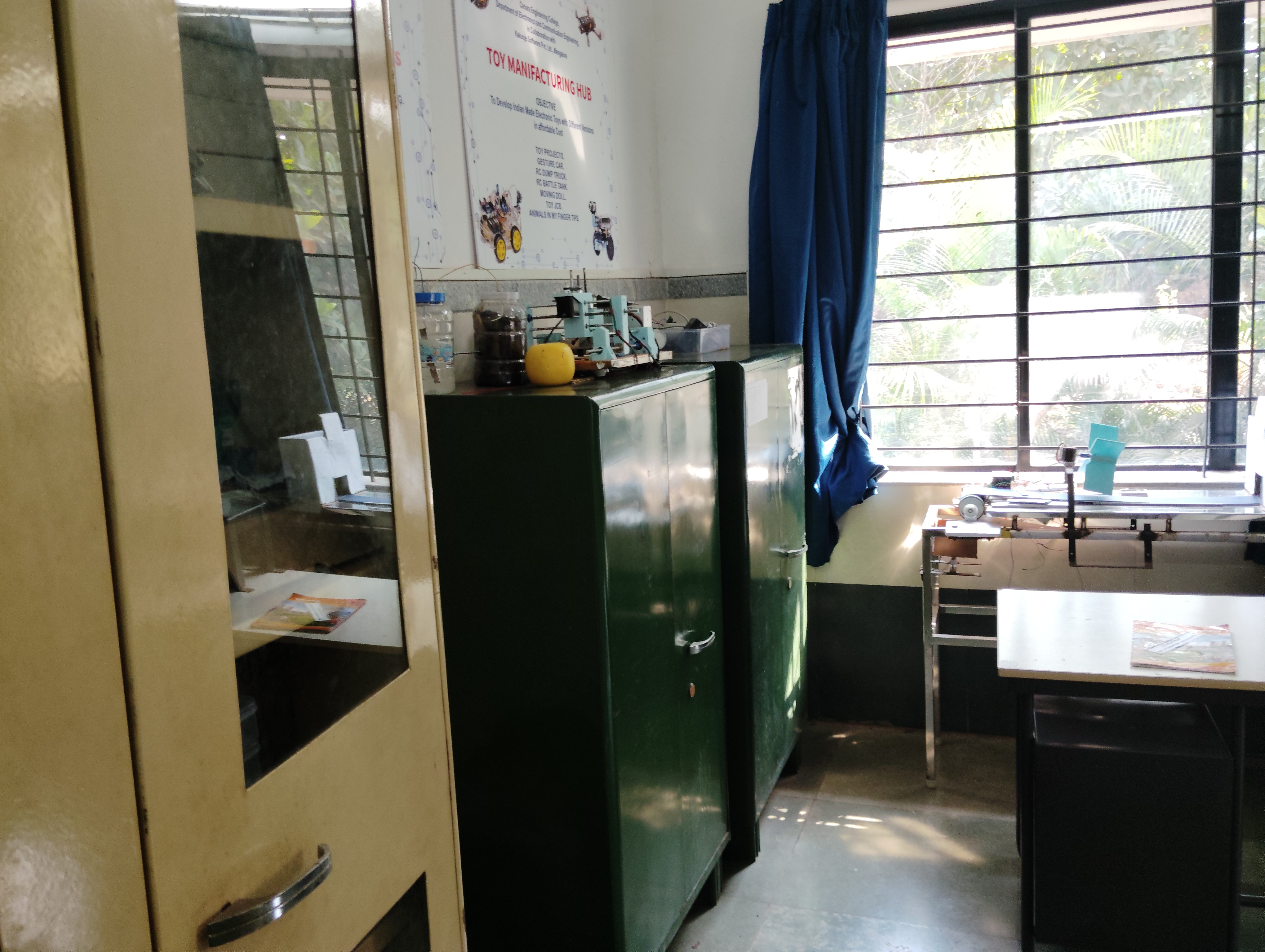 | |
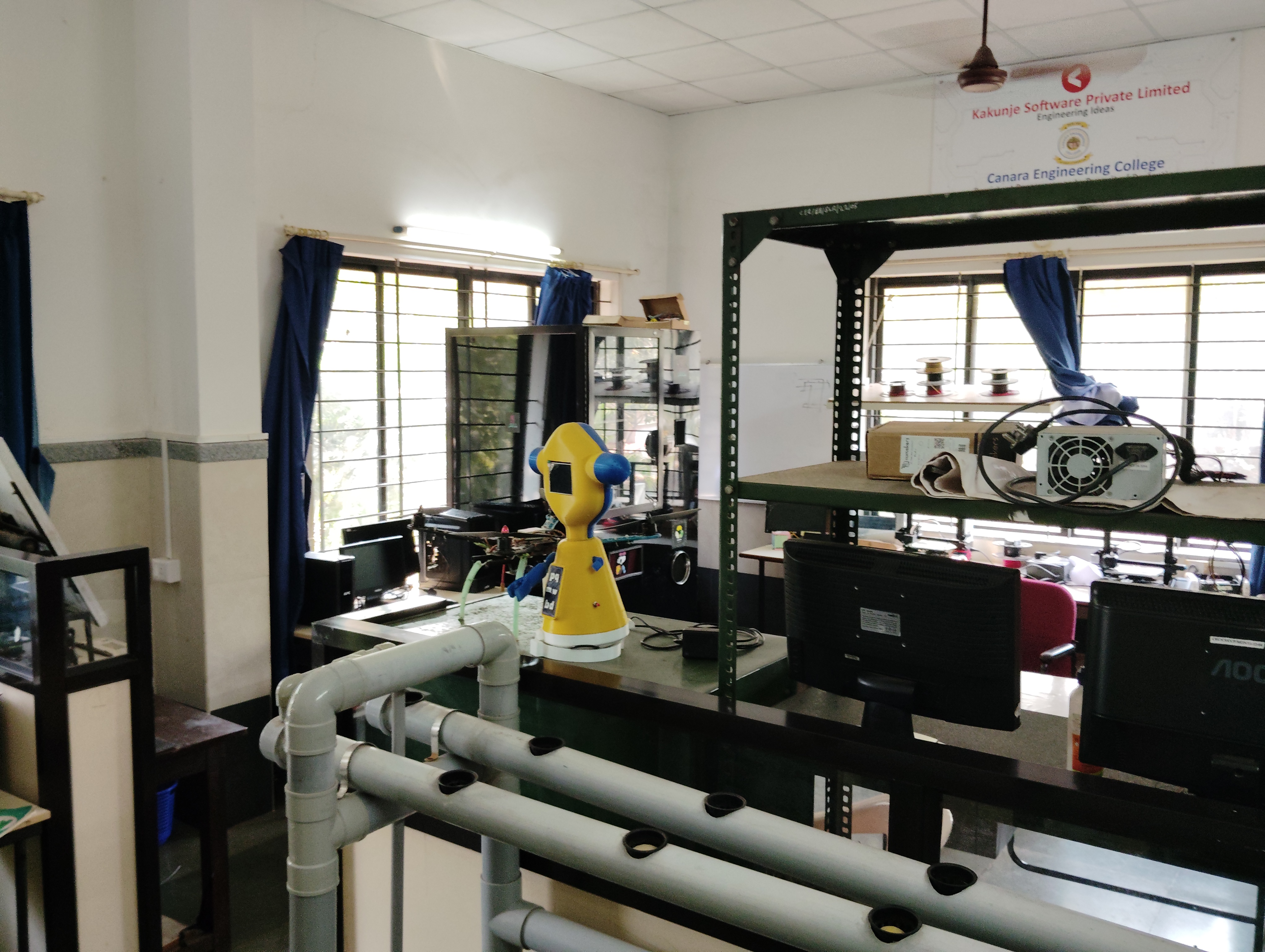 | |
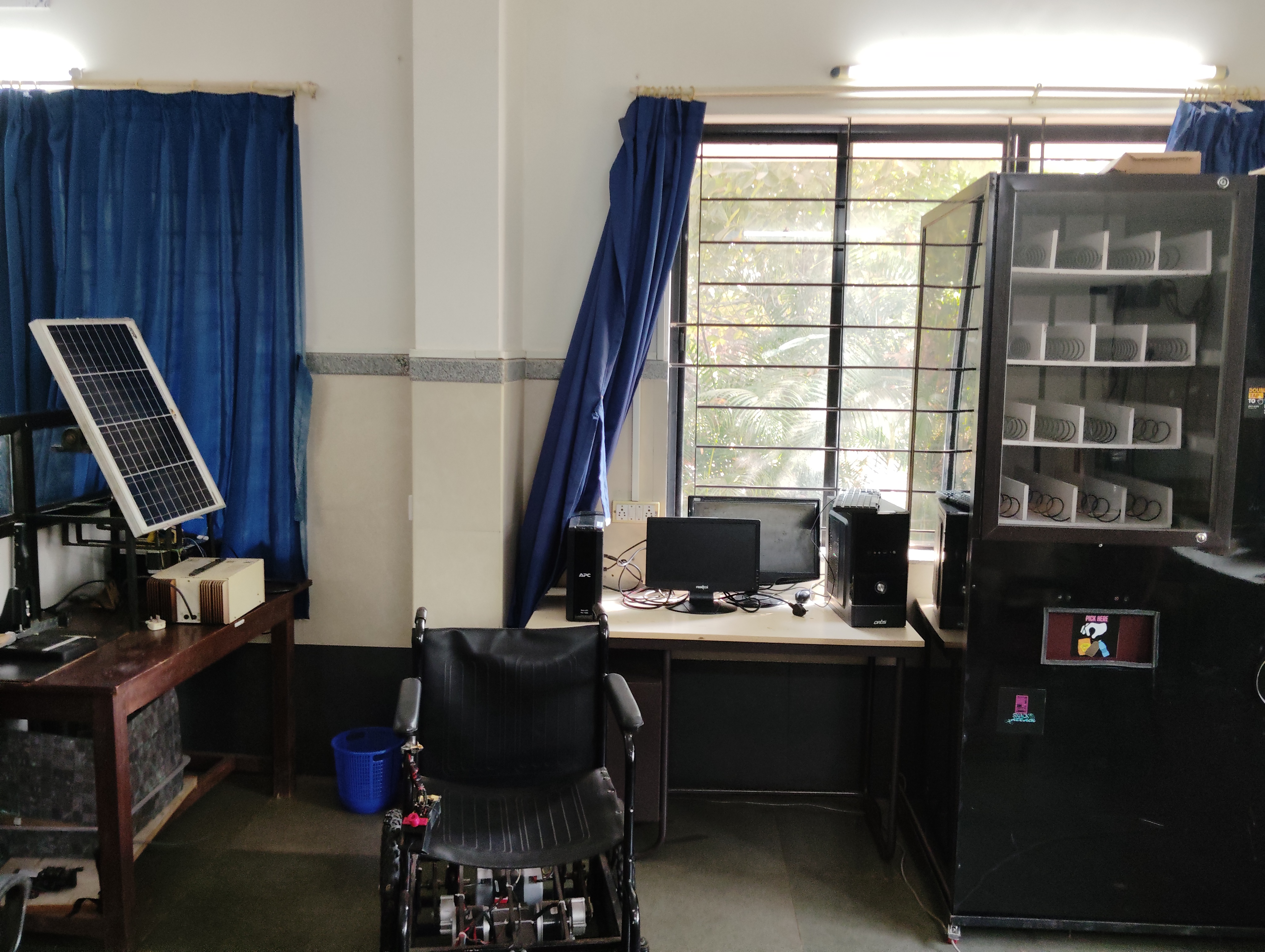 |
Class Room
|  |
Seminar Hall
|  |
Tutorial Room
Department has a tutorial room with a seating capacity of 20 students with LCD projector for conducting tutorial classes.
 |
PLACEMENTS AND JOB OFFERS
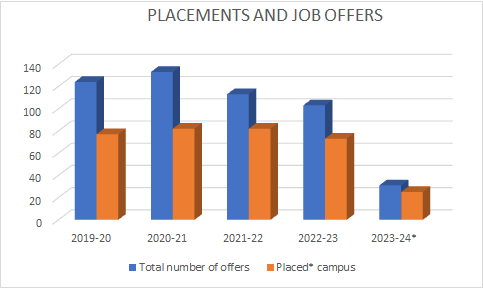
EXAMINATION RESULTS (VIII SEMESTER)
.png)
AWARDS IN TECHNICAL EVENTS CONFERENCES
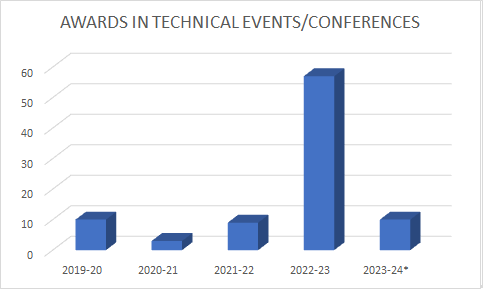
PARTICIPATION IN TECHNICAL EVENTS
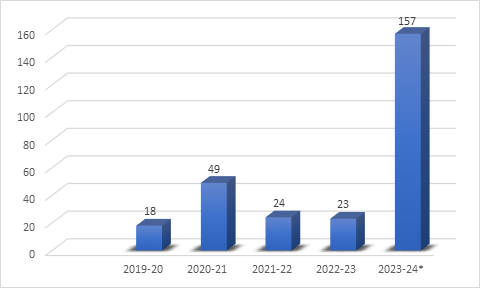
PUBLICATIONS IN CONFERENCES
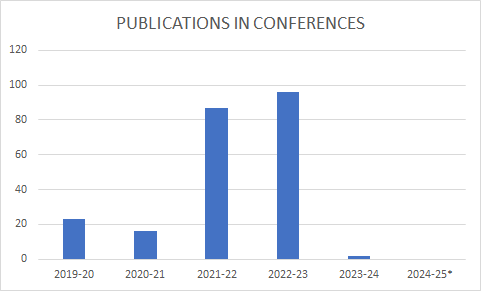
RESEARCH AREAS
| Domain | Faculty | Research Scholars |
|---|---|---|
| Applied Electronics | Mrs. Jayashree K Mr. Sandeep Prabhu M |
Mrs. Tara B B Mr. Divyesh Divakar Mr.Anantha Krishna Kamath |
| Communication System | Mr. Vinay H S Mrs. Rajitha A A Mr. Sreerama Samartha J G |
Research Scholars |
| VLSI and Embedded System | Dr. Dayananda G K | Mr. Mohan A R |
| Signal Processing and Computer Programming | Dr. Ganesh V. Bhat | Mr. Padmahasa M Mr. Vayusutha M |
| Artificial Intelligence & Machine Learning | Mr. Manjunatha I R Mr. Sujit Satish Pai Mrs. Savitha Acharya Mrs. Akshatha G Baliga Dr.Raghavendra M Shetty K |
Mrs.Suchitra N Shenoy Mr. Ajeya B |
| WORKING MODELS | |||||||||||
|---|---|---|---|---|---|---|---|---|---|---|---|
| YEAR | PROJECT TITLE | GUIDE | MEMBERS | ||||||||
| 2022-23 | MULTI CONTROLLED ELECTRIC WHEEL CHAIR | Ms. Savitha Acharya |
|
||||||||
| 2023-24 | AUTOMATIC RUBBER MILK MIXING MACHINE BY DETERMINING THE DRY RUBBER CONTENT OF LATEX | Mr. Vinay H S |
|
||||||||
| 2023-24 | ADVAYA VAHANA | Ms. Jayashree K |
|
||||||||
| 2023-24 | LOW-COST MYOELECTRIC PROSTHETIC ARM | Dr. Dayananda G K |
|
||||||||
| 2023-24 | VENDING MACHINE USING UPI | Ms. Rajitha A A |
|
||||||||
| 2024-25 | DESIGN AND IMPLEMENTATION OF HELICAL ANTENNA FOR AIRCRAFT COMMUNICATION | Mr. Sreerama Samartha J G |
|
||||||||
PUBLICATIONS IN INTERNATIONAL JOURNALS

PUBLICATIONS IN INTERNATIONAL CONFERENCES
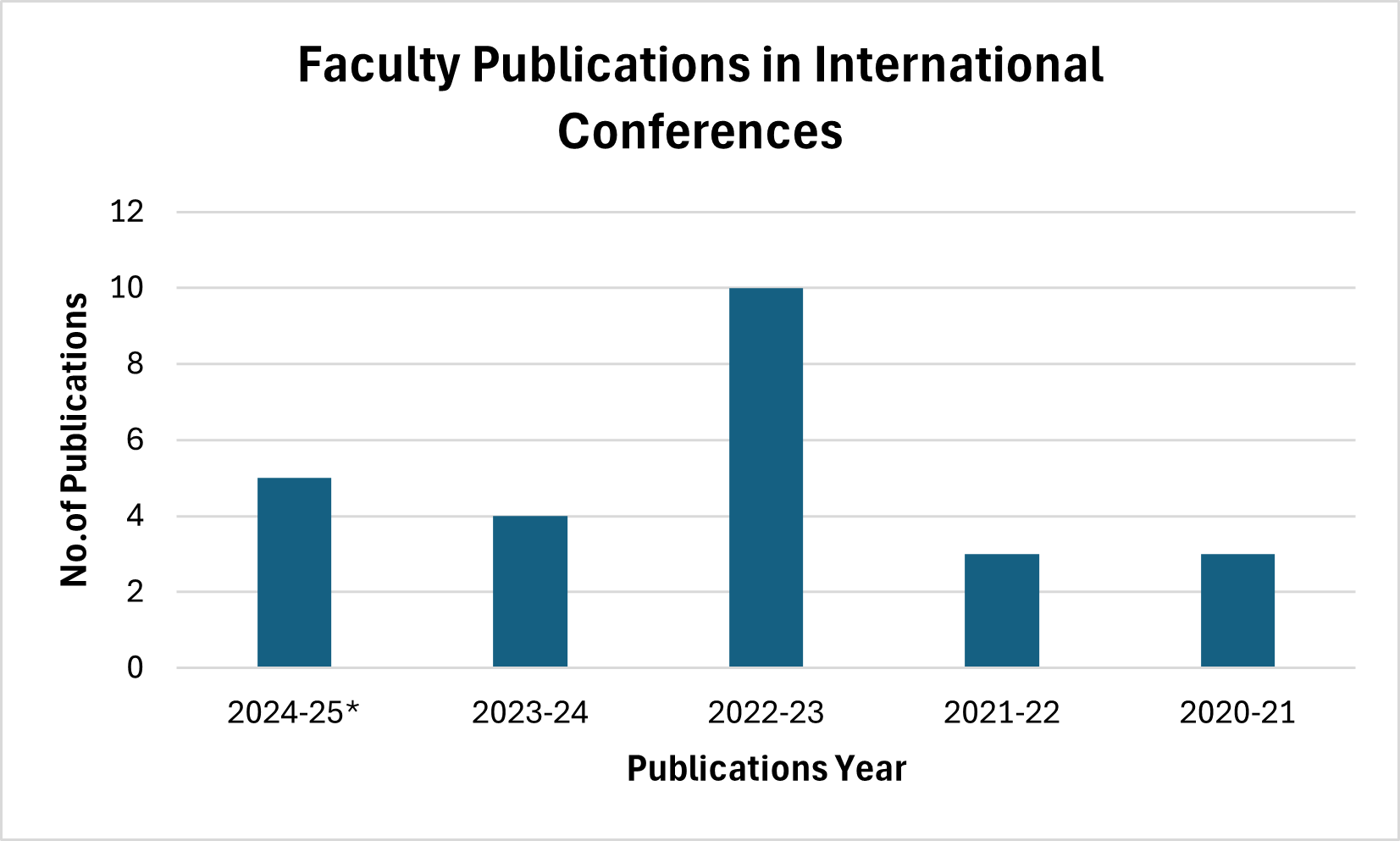
PATENT

FACULTY PURSUING DOCTORAL STUDIES
| Ms. savitha Acharya | Ms.Jayasree K | Ms. Akshatha G Baliga |
| Mr. Sreerama Samarta J G | Mr. Sandeep Prabhu M | Ms.Rajitha A A |
| Mr. Vinay H S | Mr. Manjunath I R | Mr. Sujith S Pai |
| Technical Talk on (29-04-2025) |
|---|
The Department of ECE in association with the Training, Career Guidance and Placement Cell organized a Technical Talk on “Emerging Trends and Career Pathways in the VLSI Industry” on 29th April 2025. The Speaker, Mr. K Pavanraj, Senior Design Engineer at Karmic, Manipal, gave an overall view of the basics of VLSI and the opportunities in the VLSI industry. He also gave many tips and tricks to prepare for interview of core industries. Second and third year students of ECE participated in the event and got benefitted. |
| Analog Circuits and PCB design (16-04-2025) |
This course offers a thorough knowledge of analog circuits and PCB design, including the basics of electronic components, circuit design, signal processing, and the development of schematic design to PCB fabrication. The course combines theoretical notions with practical hands-on implementation to allow the student to design, simulate, and fabricate operational electronic circuits |
| Report Writing in LATEX (15-04-2025) |
The Department of Electronics and Communication Engineering organized a workshop on "Report Writing in LaTeX" for third-year ECE students on April 15, 2025, at 2:00 PM. The session aimed to introduce students to LaTeX, a high-quality typesetting system widely used for technical and scientific documentation. Both speakers shared their expertise in LaTeX, guiding students through various features such as document structure, formatting, inserting figures and tables, handling references, and using templates for academic and technical reports. The session included live demonstrations and hands-on activities, allowing students to practice LaTeX commands and compile documents in real time. The interactive nature of the workshop helped participants gain practical knowledge and confidence in using LaTeX for preparing professional documents, project reports, and theses. The workshop was well-received by the students, who appreciated the clarity and depth of the content delivered. It served as a valuable learning experience for those looking to enhance their technical documentation skills. The event was coordinated by Ms. Rajitha A A, Assistant Professor, Department of ECE. |
| WORKSHOP ON IOT APPLLICATIONS USING ESP32 (22-03-2025) |
One-day hands-on workshop on "IoT Applications using ESP32" was conducted by Dr. Ganesh V Bhat and Mr. Sreerama Samartha from Department of Electronics and Communication, Canara Engineering College for IV semester students of 2023 batch. The event was organized by the Department of ECE and 64 participants gained practical experience in developing IoT applications, leveraging the capabilities of the ESP32 microcontroller. As a part of the workshop, a hackathon was conducted wherein the students implemented their own ideas for various applications. |
| Career Canvas (20-03-2025) |
The Department of Electronics and Communication Engineering, in association with the Training, Career Guidance, and Placement Cell, organized Career Canvas for 2nd and 3rd-year ECE students on March 20, 2025, at 1:30 PM. During the session, they provided valuable guidance on resume writing, helping students understand the key elements of an effective resume, structure content strategically, and highlight skills and achievements to stand out in the job market. The insights shared will empower students to create professional resumes that enhance their employability. The session was coordinated by Ms. Rajitha, Assistant Professor, Department of ECE. |
| Interdouction To Macine Learnig 3 (19-03-2025) |
The "Introduction to Machine Learning 3" workshop focused on the Matplotlib library, an essential tool for data visualization in Python. During the session, participants learned how to create various types of plots, such as line charts, bar graphs, and scatter plots, to effectively visualize and interpret data in machine learning projects. Dr. Ganesh V. Bhat, Professor from the ECE Department, and Mr. Sreerama Samartha J.G., Assistant Professor, led the session, providing hands-on demonstrations and practical examples. The workshop saw active participation from 6th-semester ECE students, who gained valuable skills in visualizing datasets, helping them better understand data trends and patterns in their machine learning tasks. |
| Interdouction To Macine Learnig 2 (12-03-2025) |
The "Introduction to Machine Learning 2" workshop focused on exploring the Pandas library, a powerful tool for data manipulation and analysis in Python. The session aimed to equip participants with the skills to efficiently handle and preprocess data, a crucial step in any machine learning workflow. Dr. Ganesh V. Bhat, Professor from the ECE Department, and Mr. Sreerama Samartha J.G., Assistant Professor, guided the attendees through various Pandas functionalities, including data frames, series, and data cleaning techniques. The workshop saw active participation from 6th-semester ECE students, who gained practical insights into data handling, setting a strong foundation for their machine learning journey. |
| Analog Circuits and PCB design - 2 (12-03-2025) |
This course offers a thorough knowledge of analog circuits and PCB design, including the basics of electronic components, circuit design, signal processing, and the development of schematic design to PCB fabrication. The course combines theoretical notions with practical hands-on implementation to allow the student to design, simulate, and fabricate operational electronic circuits. |
| Analog Circuits and PCB design (05-03-2025) |
This course offers a thorough knowledge of analog circuits and PCB design, including the basics of electronic components, circuit design, signal processing, and the development of schematic design to PCB fabrication. The course combines theoretical notions with practical hands-on implementation to allow the student to design, simulate, and fabricate operational electronic circuits. |
| Interdouction To Macine Learnig 1 (05-03-2025) |
The "Introduction to Machine Learning 1" workshop was conducted to provide participants with a foundational understanding of machine learning concepts and tools. The focus of the session was on the Numpy library, a core Python package for scientific computing, which plays a vital role in data manipulation and mathematical operations in machine learning. Dr. Ganesh V. Bhat, Professor from the ECE Department, and Mr. Sreerama Samartha J.G., Assistant Professor, served as the resource persons for the event. The workshop saw enthusiastic participation from 6th-semester ECE students, who actively engaged in hands-on exercises and discussions to grasp the basics of machine learning and its applications. |
| Anveshana (28-02-2025) |
Anveshana 2025 National Project Expo finals, we showcased our concept for an Electrooculogram (EOG)-based cursor control system. We utilized the BioAmp EXG pill to filter and amplify the EOG signal, which was then transmitted to an Arduino. We set a threshold range for all four directions (right, left, top, and bottom) based on eye movements. The Arduino transmits these directional commands as strings, i.e., 'right,' 'left,' 'top,' or 'bottom.' Then, PyCharm translates these signals with the OS to move the cursor accordingly.". In Anveshana, we need to pitch our idea to more than 1,000 school children and 8+ jury members. Participated and placed 12th out of 46 teams. |
| Technovation 2024: Bridging Ideas and Technology (10-12-2024) |
Technovation 2024 "Bridging Ideas and Technology" Venue: EC Seminar Hall Overview: Technovation 2024 witnessed enthusiastic participation, with 16 teams from the ECE department showcasing their innovative projects. The event provided a platform for students to present their ideas, bridging the gap between creativity and technology. Winners: Project Title: Low Dropout Voltage Regulator Code: CEC/ECE/2024-25/24P01 Team Members: Gururprasad (4CB21EC014) K Shreenidhi (4CB21EC017) Nidhi G (4CB21EC025) Chithara S (4CB21EC011) Guided by: Mrs. Savitha Acharya Project Title: Design and Implementation of Helical Antenna for Aircraft Communication Code: CEC/ECE/2024-25/24P10 Team Members: Aishwarya H S (4CB21EC001) Spandana (4CB21EC054) Lata Keshav Naik (4CB21EC020) Sonali S (4CB21EC053) Guided by: Mr. Sreerama Samartha J.G. Congratulations to the winners for their exceptional efforts and innovative solutions! The event successfully highlighted the technical potential and creativity of students, reinforcing the ECE department's commitment to fostering innovation and excellence. |
| Industrial Visit (02-12-2024) |
Objective: To gain practical insights into cutting-edge cybersecurity technologies and innovation processes at the incubation center and center of excellence Description: The Department of Electronics and Communication Engineering organized a full-day Industrial Visit on December 2nd, 2024, specifically for second-year EC students. The itinerary for the day included: Visit to the MUTBI center at MAHE: This likely involved students participating in or observing the Diverse Startup Ecosystem and State-of-the-Art Infrastructure, Visit to the Centre of Excellence for Cyber Security at MIT: Students had the opportunity to visit a specialized center focusing on cyber security. This visit would have provided insights into the importance of cyber security in today's digital landscape. Students were made aware of the mentorship and support, and Collaboration and Networking provided at the centre. Outcome: Overall, the industrial visit aimed to enhance students' understanding of emerging technologies in cyber security, and the Incubator Ecosystem. Event was coordinated by Ms, Savitha Acharya, Department of ECE. Social media link: https://www.facebook.com/share/p/sCkKanaHFZydiECG/ |
| Innovation and entrepreneurship Outreach Program in Sri Ramakrishna High School, Puttur (30-11-2024) |
Objective - 1. To Transfer Knowledge on Engineering Innovation and Research. 2. To Transfer Knowledge on building mini Projects using Arduino and IoT Outcome - 1. Students came to know about Innovation in Engineering and they were able to interface LED using Arduino. Description - Event started at 9:30AM with a formal function where Dr. Dayanand G K and Mr. Sreerama Samartha addressing the gathering. After 30 minutes of lunch break, Hands on session on Arduino and ioT and session ends at 4:30PM. Social Media link: https://www.facebook.com/share/p/12BpKWoR6Hq/?mibextid=qi2Omg |
| Innovation and entrepreneurship Outrich Proram (29-11-2024) |
Objective: To impart comprehensive knowledge and skills related to Engineering Innovation and Research, inspiring students to think creatively and apply engineering principles in real-world scenarios. To equip students with practical expertise in building mini projects using Arduino and IoT, fostering a hands-on learning experience and bridging the gap between theoretical knowledge and practical implementation. Outcome: Students gained insights into the importance of innovation in engineering and its role in solving contemporary challenges. Participants successfully learned to interface an LED with Arduino, gaining foundational skills in microcontroller programming and IoT integration. Description: The event commenced at 9:30 AM with a formal inaugural function, where Dr. Venkatesh N. addressed the gathering, emphasizing the relevance of engineering innovation in modern-day challenges and encouraging students to explore research opportunities. The first technical session began at 11:00 AM, conducted by Prof. Vinod, who provided an engaging and interactive session on the fundamentals of Arduino programming and IoT applications. The session concluded at 1:00 PM, followed by a 30-minute lunch break. The afternoon session, a hands-on workshop, started at 1:30 PM. During this session, participants were guided step-by-step to interface an LED with Arduino and explore additional functionalities of IoT-enabled devices. This practical exposure allowed students to work collaboratively, troubleshoot issues, and gain confidence in implementing their own mini projects. The workshop concluded at 4:30 PM, with students demonstrating their projects and receiving feedback from the trainers. Poster: Include a visually appealing poster showcasing: https://www.facebook.com/share/p/1AbS2AVaHw/ |
| Hands-On Workshop on Line Following Robot (27-11-2024) |
This workshop aims to provide students with a comprehensive understanding of the design, construction, and programming of a line-following robot. By the end of the workshop, participants will: 1. Learn about robotic sensors, actuators, and controllers. 2. Understand the working principles behind line-following robots, including sensor integration and motor control. 3. Gain hands-on experience in assembling and wiring a line-following robot. 4. Develop problem-solving skills by testing and optimizing their robot's performance on various track conditions. Objective: To equip participants with the skills to design, build, and program a line-following robot using sensors, microcontrollers, and basic robotics principles. Outcome: Participants will be able to assemble, code, and optimize a line-following robot that can navigate a track independently by detecting and following a line using IR sensors. |
| Hands on workshop on line following robot (20-11-2024) |
This workshop aims to provide students with a comprehensive understanding of the design, construction, and programming of a line-following robot. By the end of the workshop, participants will: 1. Learn about robotic sensors, actuators, and controllers. 2. Understand the working principles behind line-following robots, including sensor integration and motor control. 3. Gain hands-on experience in assembling and wiring a line-following robot. 4. Develop problem-solving skills by testing and optimizing their robot's performance on various track conditions. Objective: To equip participants with the skills to design, build, and program a line-following robot using sensors, microcontrollers, and basic robotics principles. Outcome: Participants will be able to assemble, code, and optimize a line-following robot that can navigate a track independently by detecting and following a line using IR sensors. Social media link:https://www.facebook.com/share/p/8RzUv4ejexaAX7dV/ |
| Hands-On Workshop on Line Following Robot (06-11-2024) |
This workshop aims to provide students with a comprehensive understanding of the design, construction, and programming of a line-following robot. By the end of the workshop, participants will: 1. Learn about robotic sensors, actuators, and controllers. 2. Understand the working principles behind line-following robots, including sensor integration and motor control. 3. Gain hands-on experience in assembling and wiring a line-following robot. 4. Develop problem-solving skills by testing and optimizing their robot's performance on various track conditions. Objective: To equip participants with the skills to design, build, and program a line-following robot using sensors, microcontrollers, and basic robotics principles. Outcome: Participants will be able to assemble, code, and optimize a line-following robot that can navigate a track independently by detecting and following a line using IR sensors. Social Media Link: |
| Hands-On Workshop on Line Following Robot (30-10-2024) |
This workshop aims to provide students with a comprehensive understanding of the design, construction, and programming of a line-following robot. By the end of the workshop, participants will: 1. Learn about robotic sensors, actuators, and controllers. 2. Understand the working principles behind line-following robots, including sensor integration and motor control. 3. Gain hands-on experience in assembling and wiring a line-following robot. 4. Develop problem-solving skills by testing and optimizing their robot's performance on various track conditions. Objective: To equip participants with the skills to design, build, and program a line-following robot using sensors, microcontrollers, and basic robotics principles. Outcome: Participants will be able to assemble, code, and optimize a line-following robot that can navigate a track independently by detecting and following a line using IR sensors. Social Site link: https://www.facebook.com/share/uzX6yRjrzE3nc7bJ/ |
| Professional Report Writing in LaTeX (29-10-2024) |
The Department of Electronics and Communication Engineering organized a hands-on workshop on Professional Report Writing in LaTeX for VII semester ECE students. The workshop aimed to introduce students to LaTeX, a powerful document preparation system widely used for professional and technical documentation in academia and industry. With the guidance of Dr. Narayana Naik, an experienced faculty member from the Department of Information Science and Engineering, students gained practical knowledge in LaTeX, specifically for structuring technical and professional reports. The main objectives of the workshop were to: 1. Familiarize students with LaTeX basics and the setup required to begin working on LaTeX documents. 2. Demonstrate the creation and formatting of professional reports, focusing on essential elements like title pages, sections, lists, tables, figures, and references. 3. Enable students to create well-structured technical documents suitable for academic reports, papers, and thesis projects. Workshop Overview The workshop was structured into a practical, hands-on session with ample opportunities for students to follow along. The session covered the following key topics: 1. Introduction to LaTeX Dr. Naik began by explaining the significance of LaTeX in technical writing, especially its advantages over traditional word processors for scientific documentation. 2. Document Structure The basics of LaTeX document structure were introduced, including \documentclass, \begin{document}, \title, \author, and \maketitle. 3. Text Formatting Different formatting techniques were discussed, including bold, italics, and underline, along with font sizing and typeface settings for various sections of a document. 4. Sections and Subsections Dr. Naik demonstrated how to structure reports using sectioning commands (\section, \subsection, etc.), emphasizing the need for logical flow and readability. 5. Lists, Tables, and Figures o Lists: Ordered and unordered lists were created to help students structure content. o Tables: The tabular environment was used to format data into structured tables, and tips for creating clean, professional tables were given. o Figures: Image insertion was shown using the figure environment, along with resizing and positioning techniques for optimal layout. 6. Equations and Mathematical Symbols LaTeX’s capabilities for formatting complex mathematical equations were introduced, demonstrating inline and displayed equations. 7. Referencing and Citations Dr. Naik discussed the basics of citations and bibliographies in LaTeX, using BibTeX for managing references and citing sources effectively in academic writing. Hands-on Exercises During the session, students were provided with sample files and templates to practice. Key hands-on activities included: • Formatting sections and subsections • Creating lists, tables, and inserting figures • Typing equations and applying labels and references within the document Feedback and Conclusion The workshop concluded with an interactive Q&A session, where students clarified doubts about LaTeX commands, formatting, and troubleshooting. The students provided positive feedback, expressing appreciation for the practical approach of the workshop. They were enthusiastic about using LaTeX for their future academic work, including project reports, seminar presentations, and technical papers. Acknowledgments The ECE Department expresses sincere gratitude to Dr. Narayana Naik for conducting the workshop. Special thanks to the ECE faculty and staff for organizing and coordinating the event, ensuring its success. |

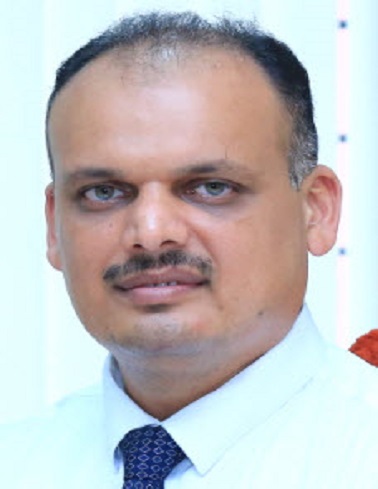
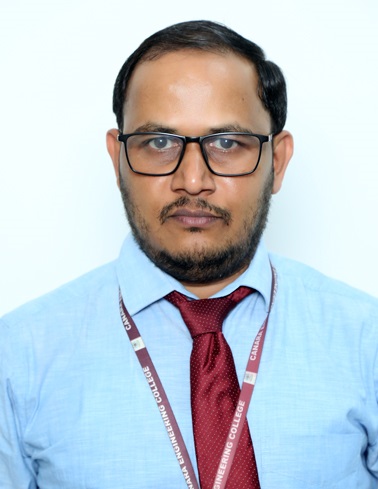
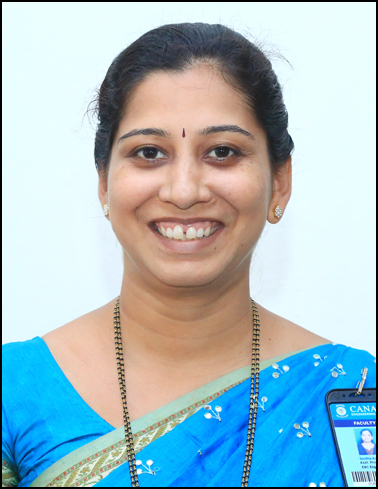
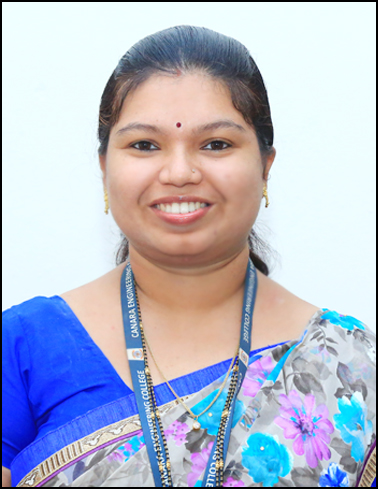
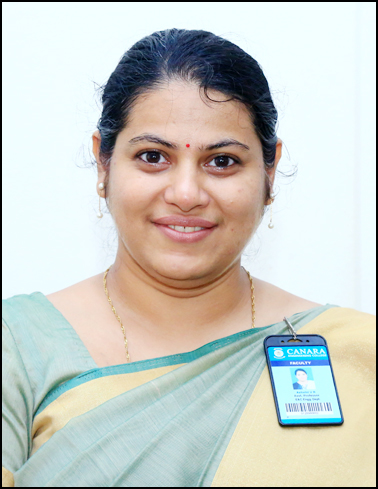
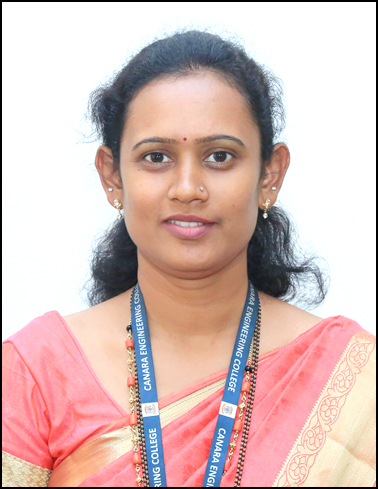
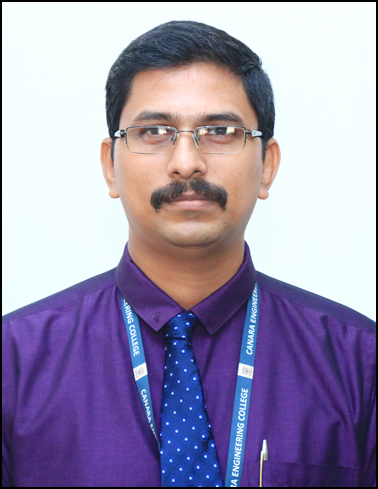
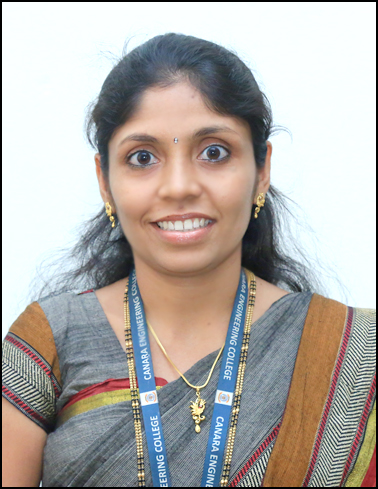
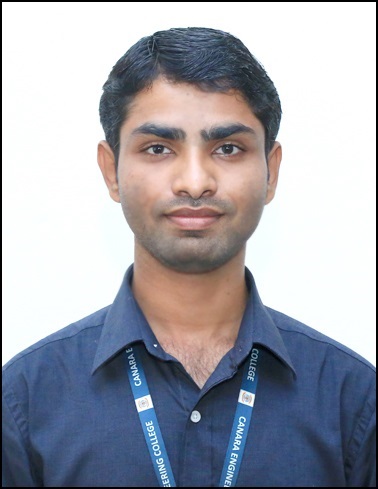
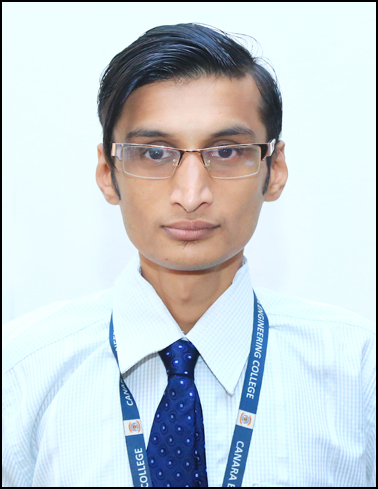
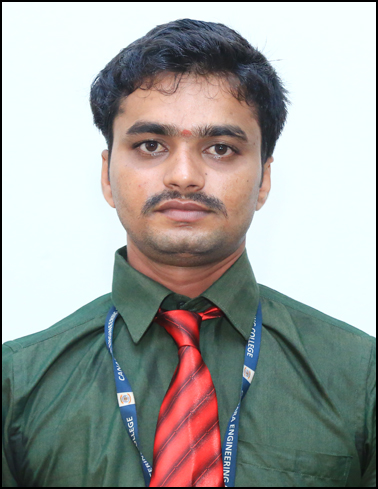
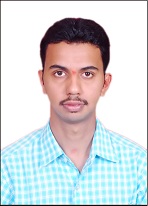
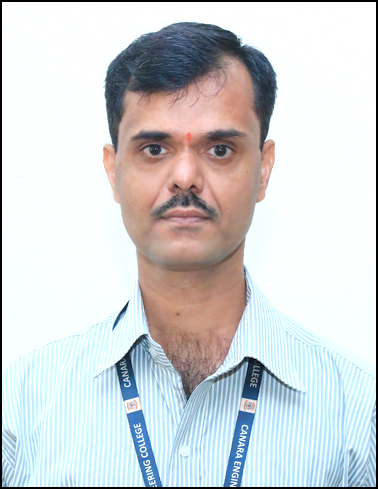
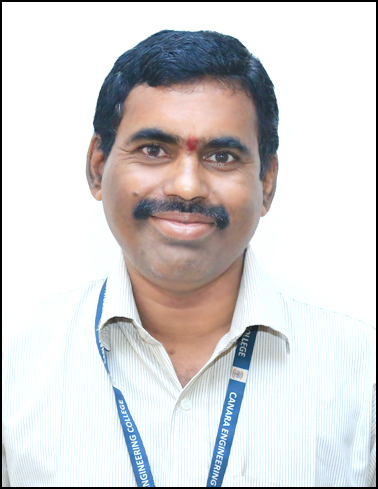
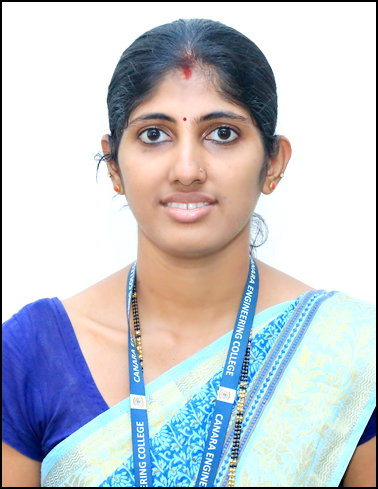
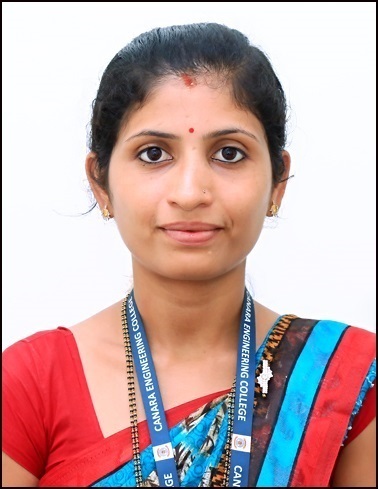
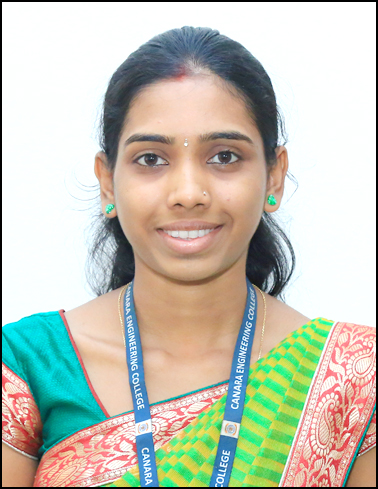
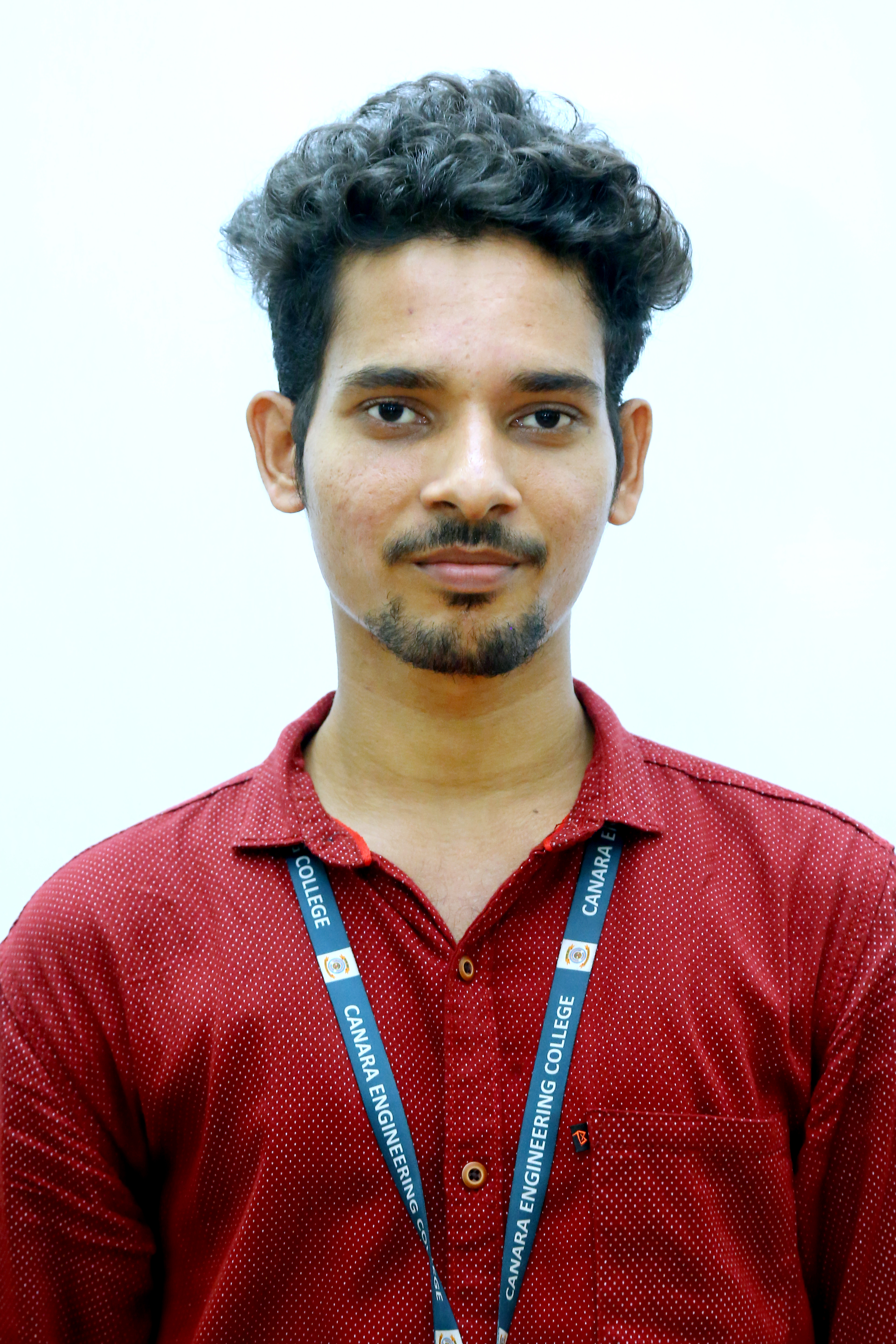
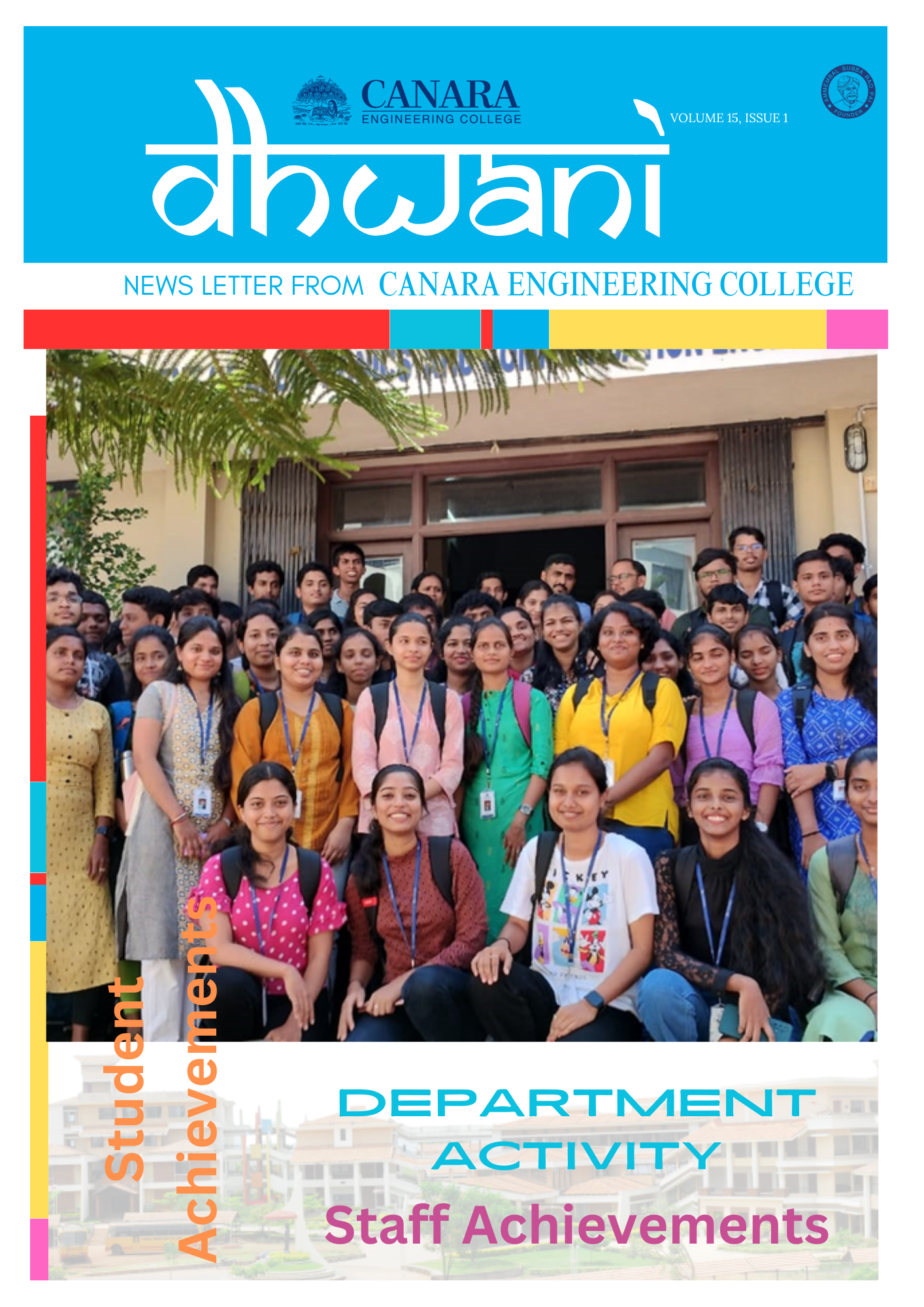
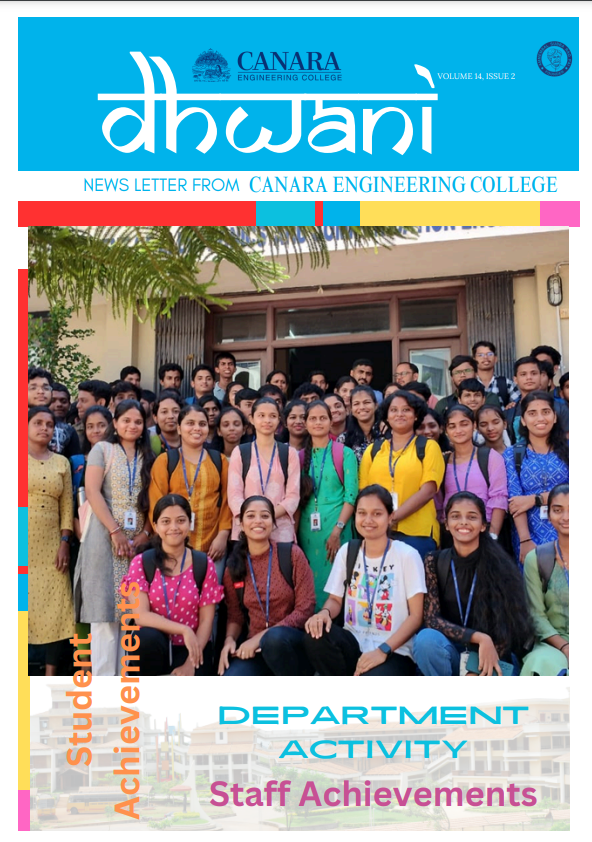
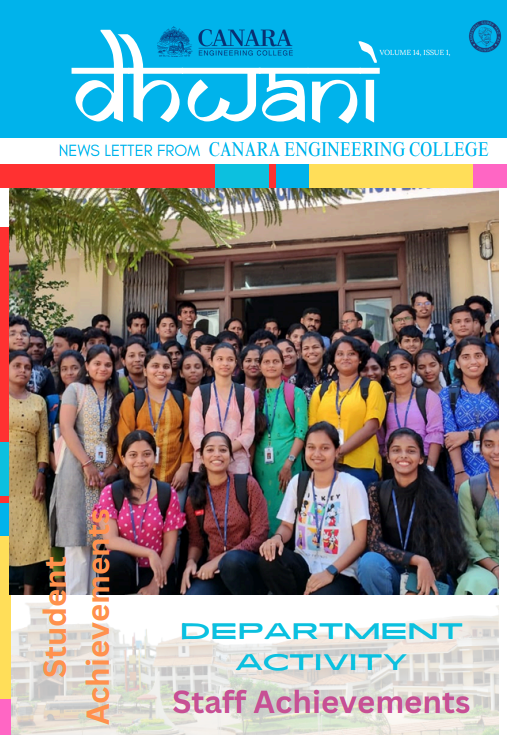
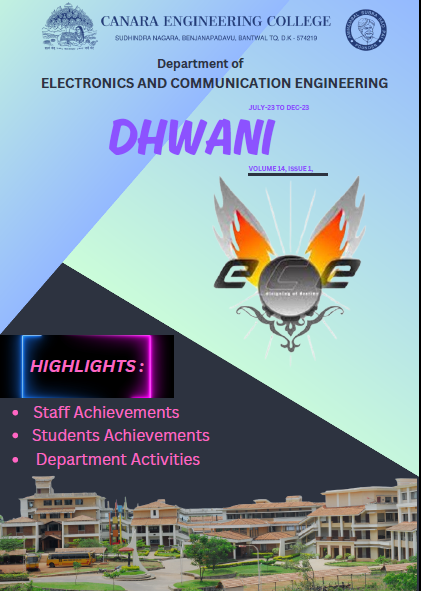
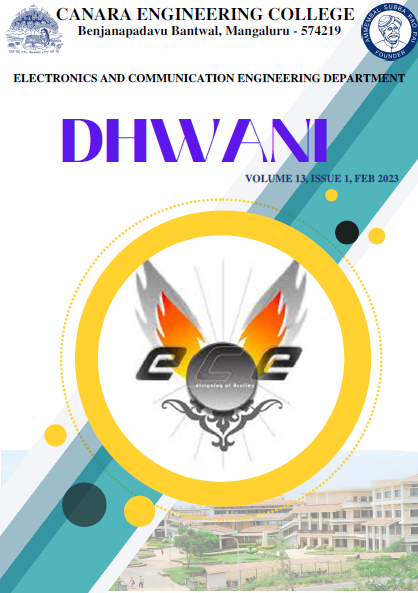
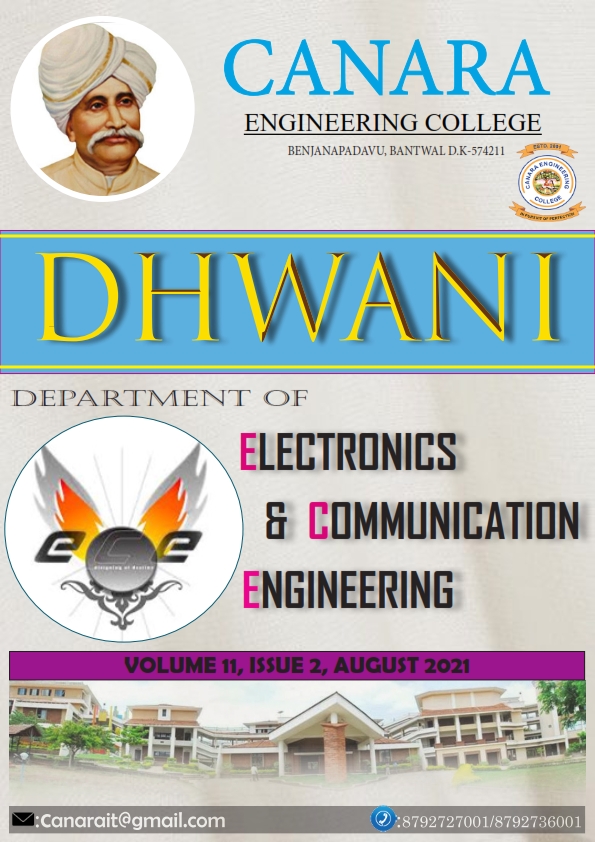
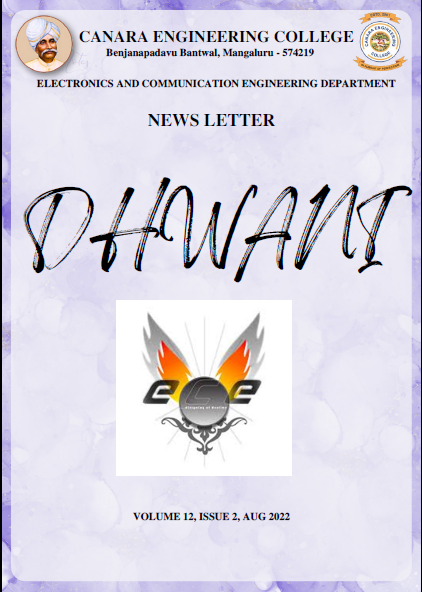
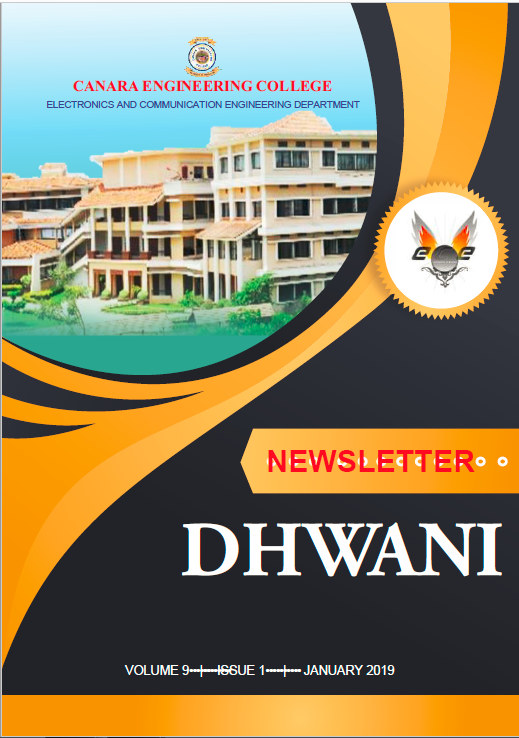
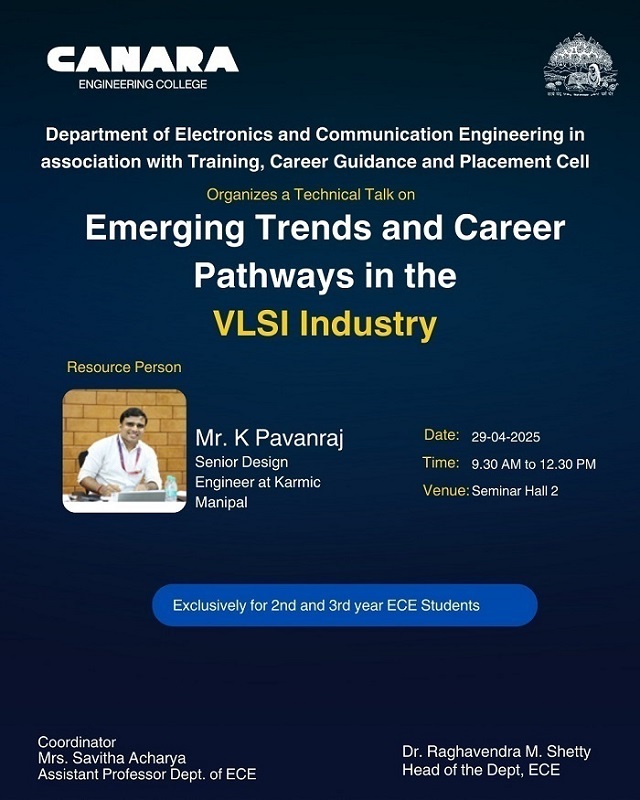
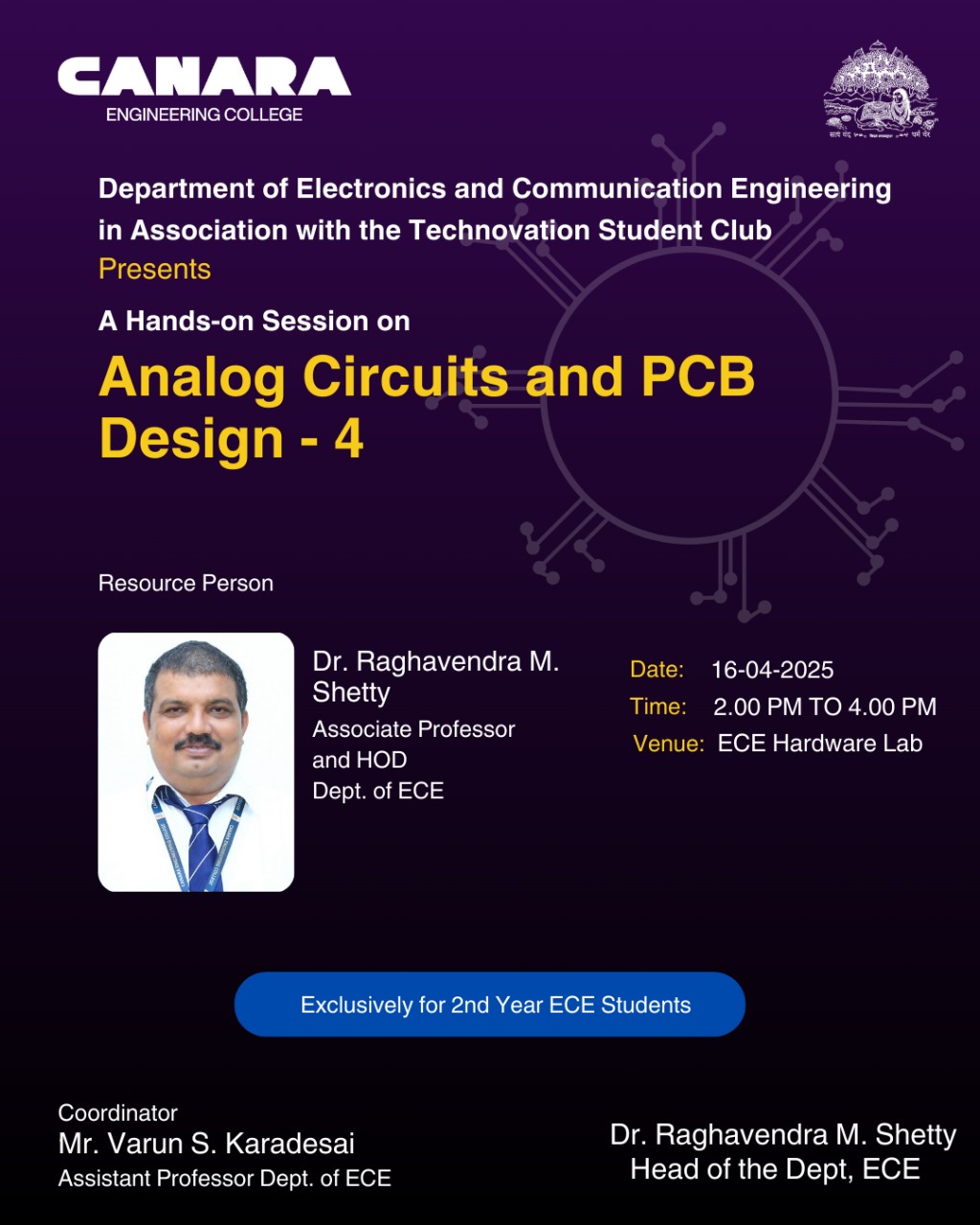
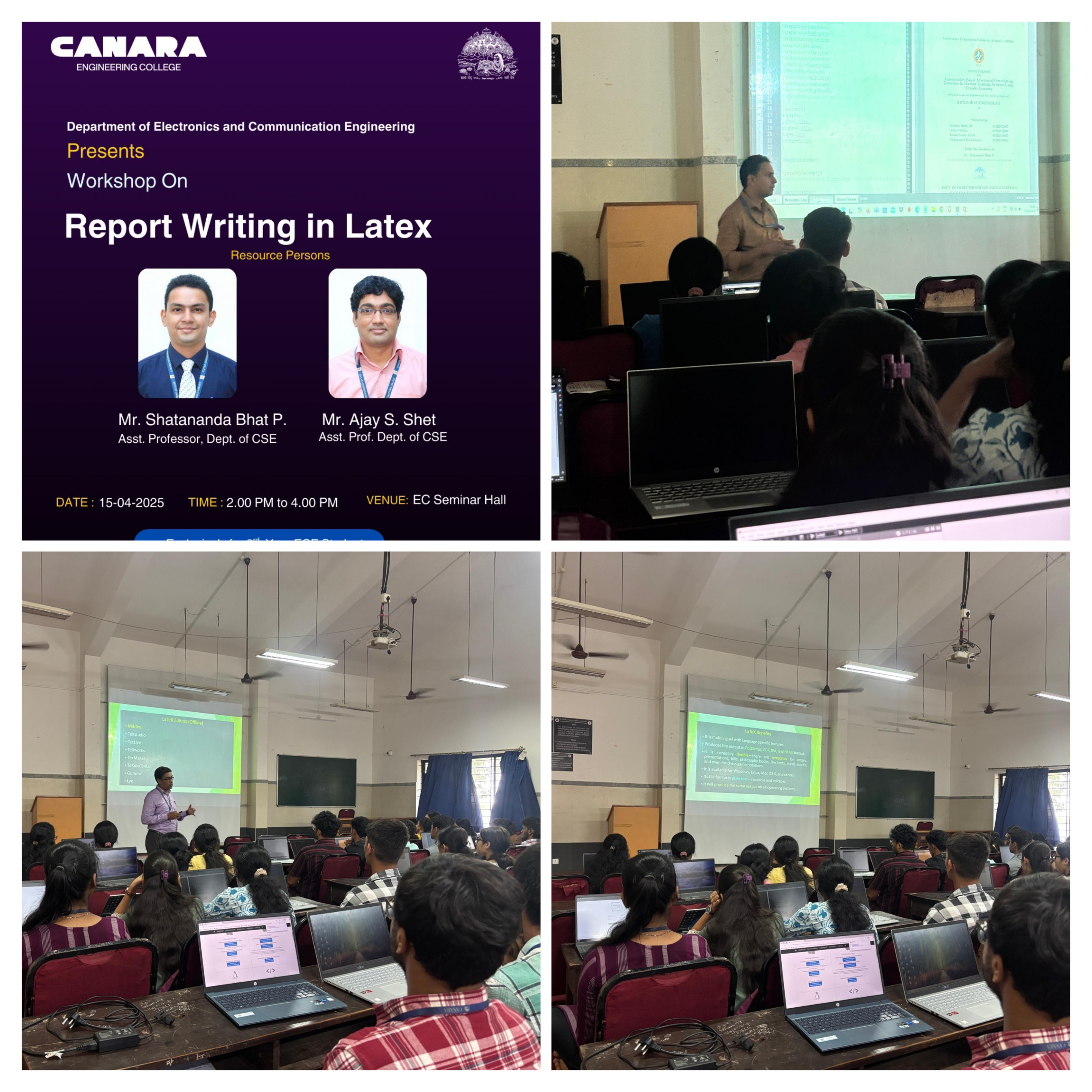
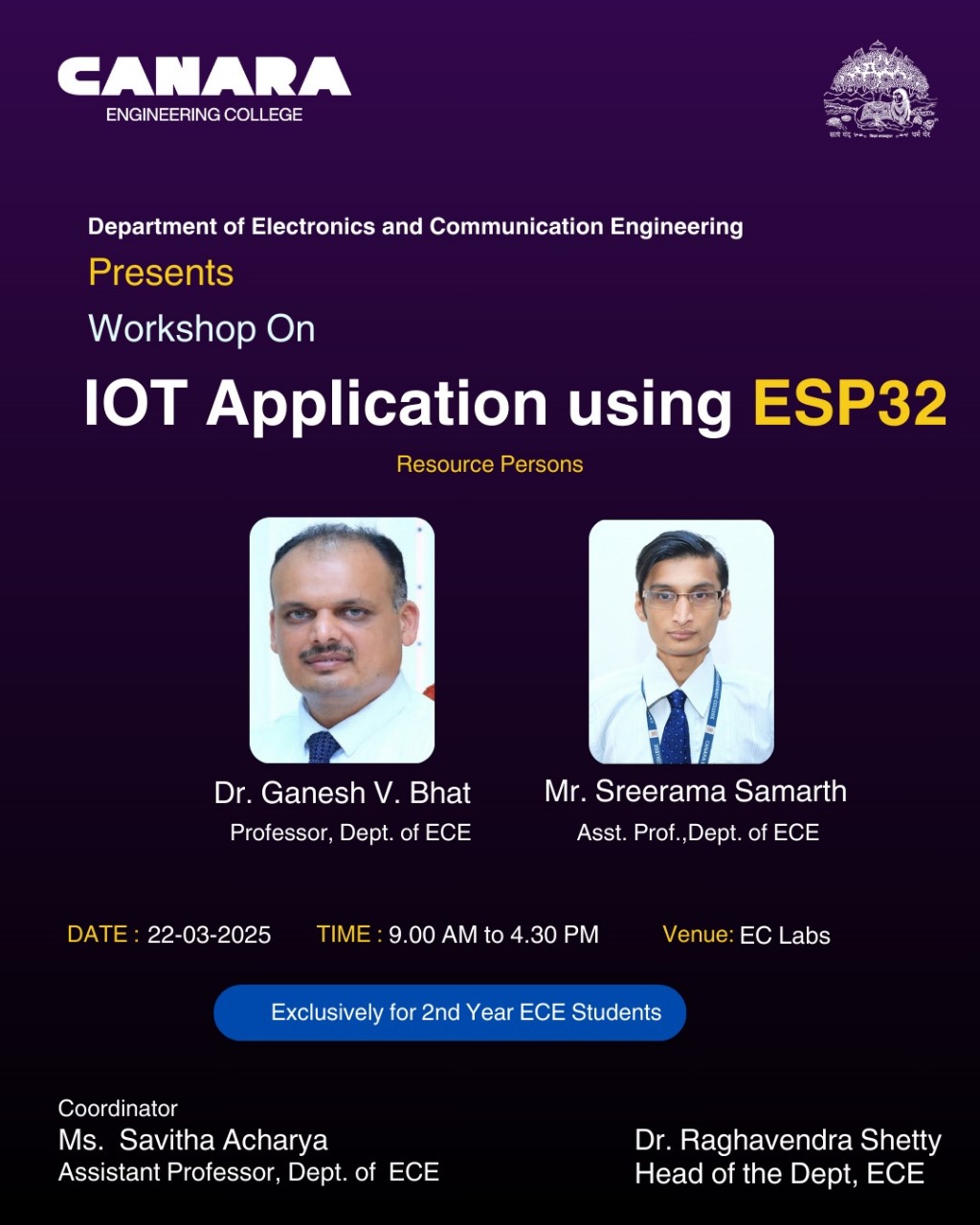
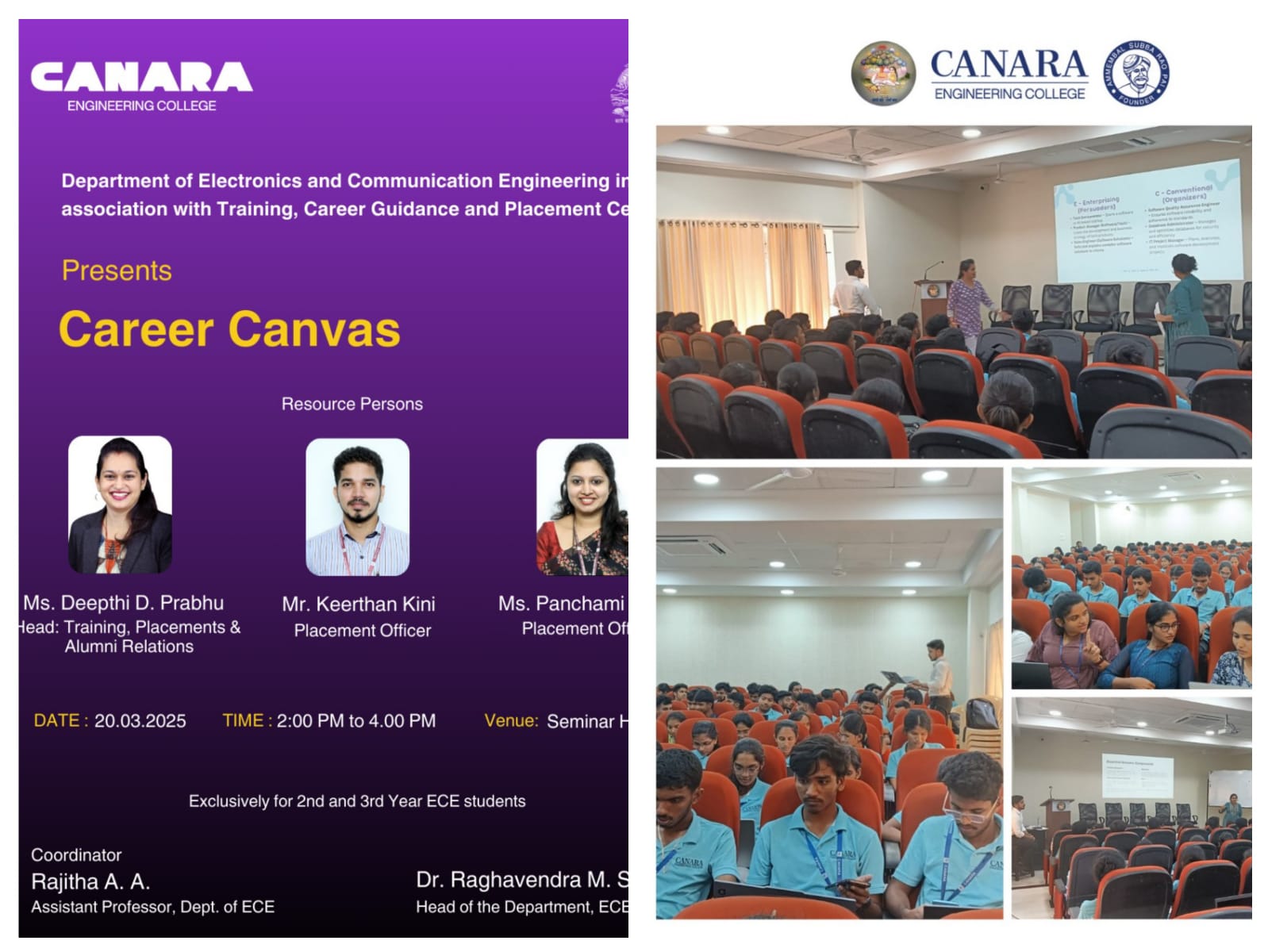
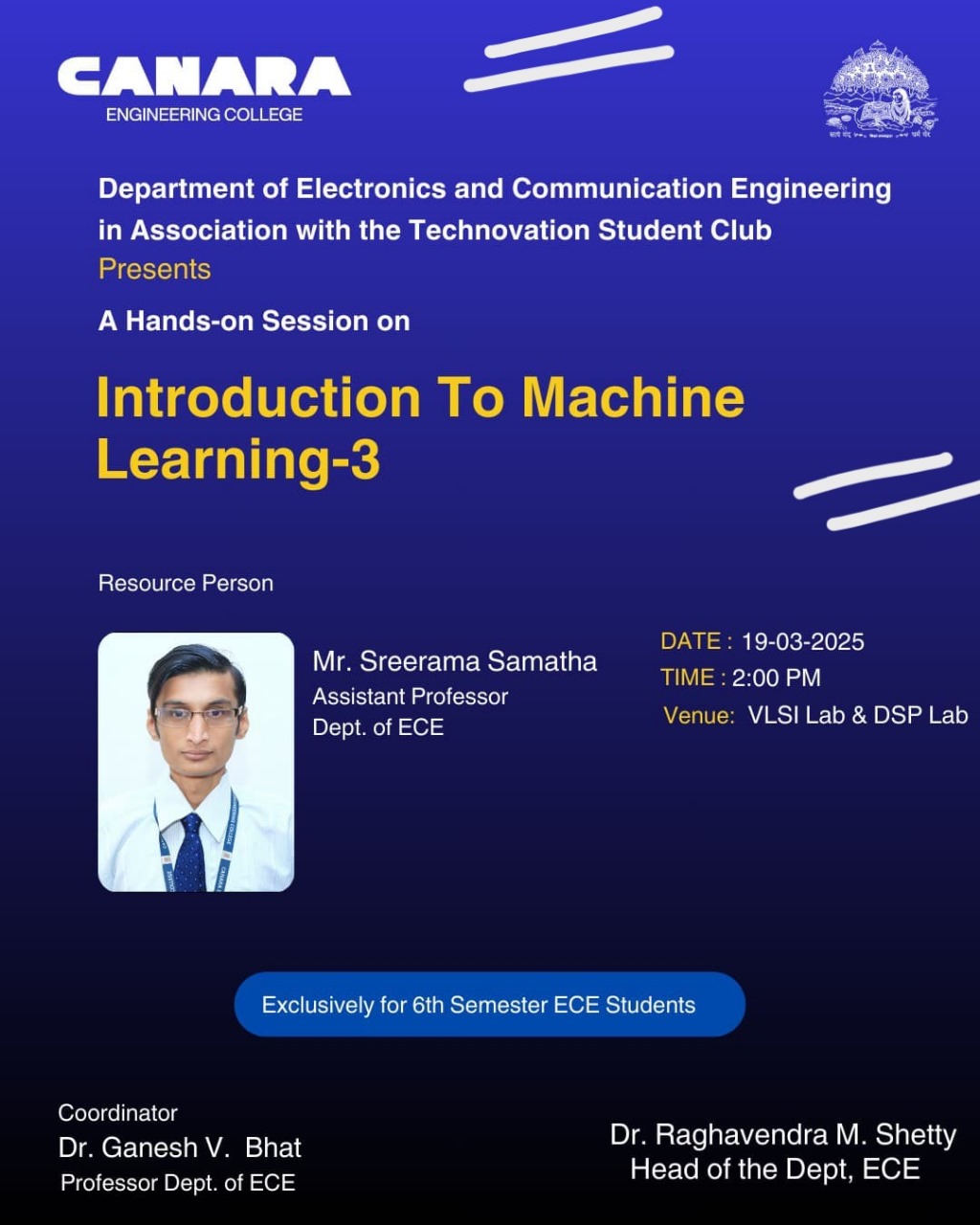
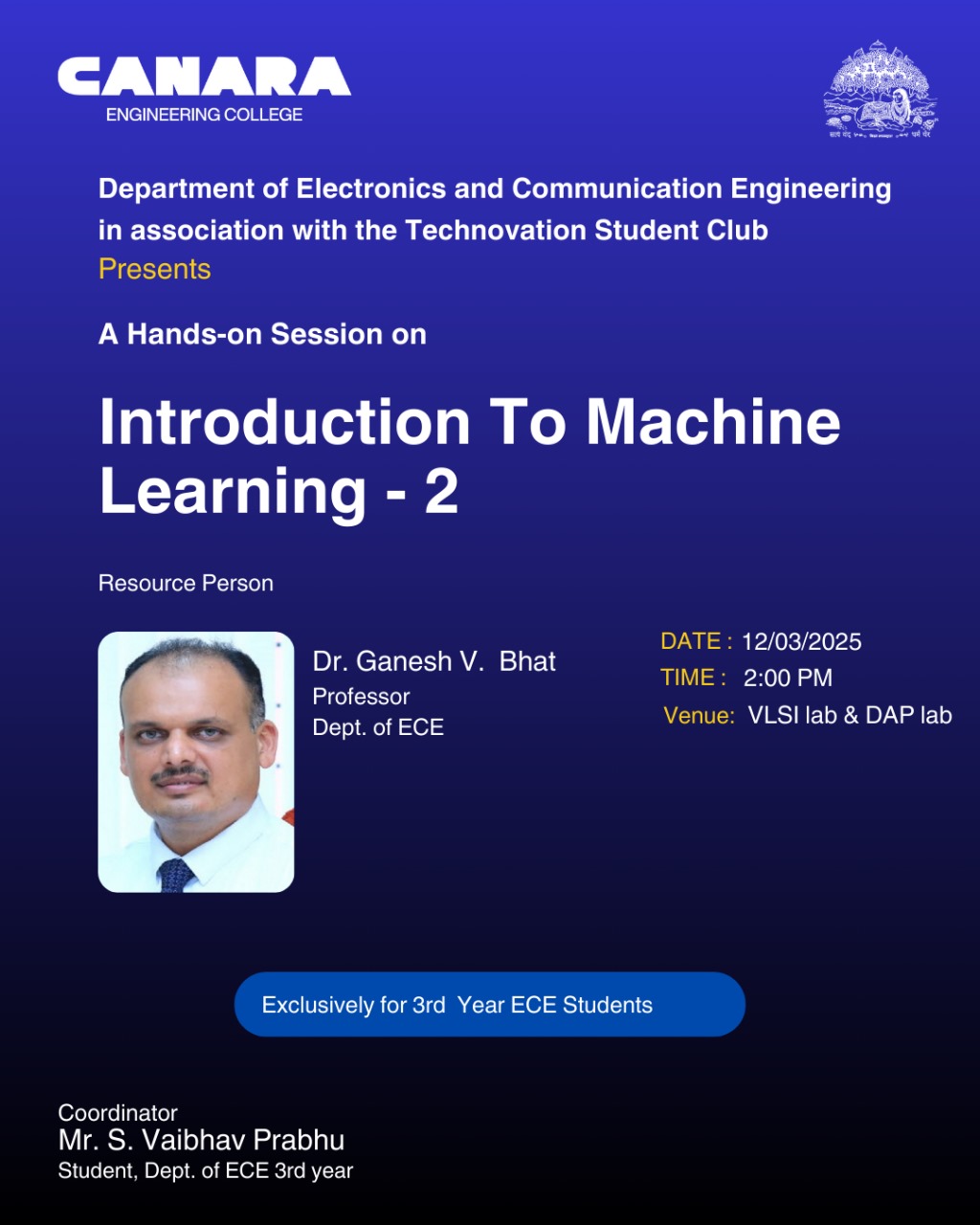
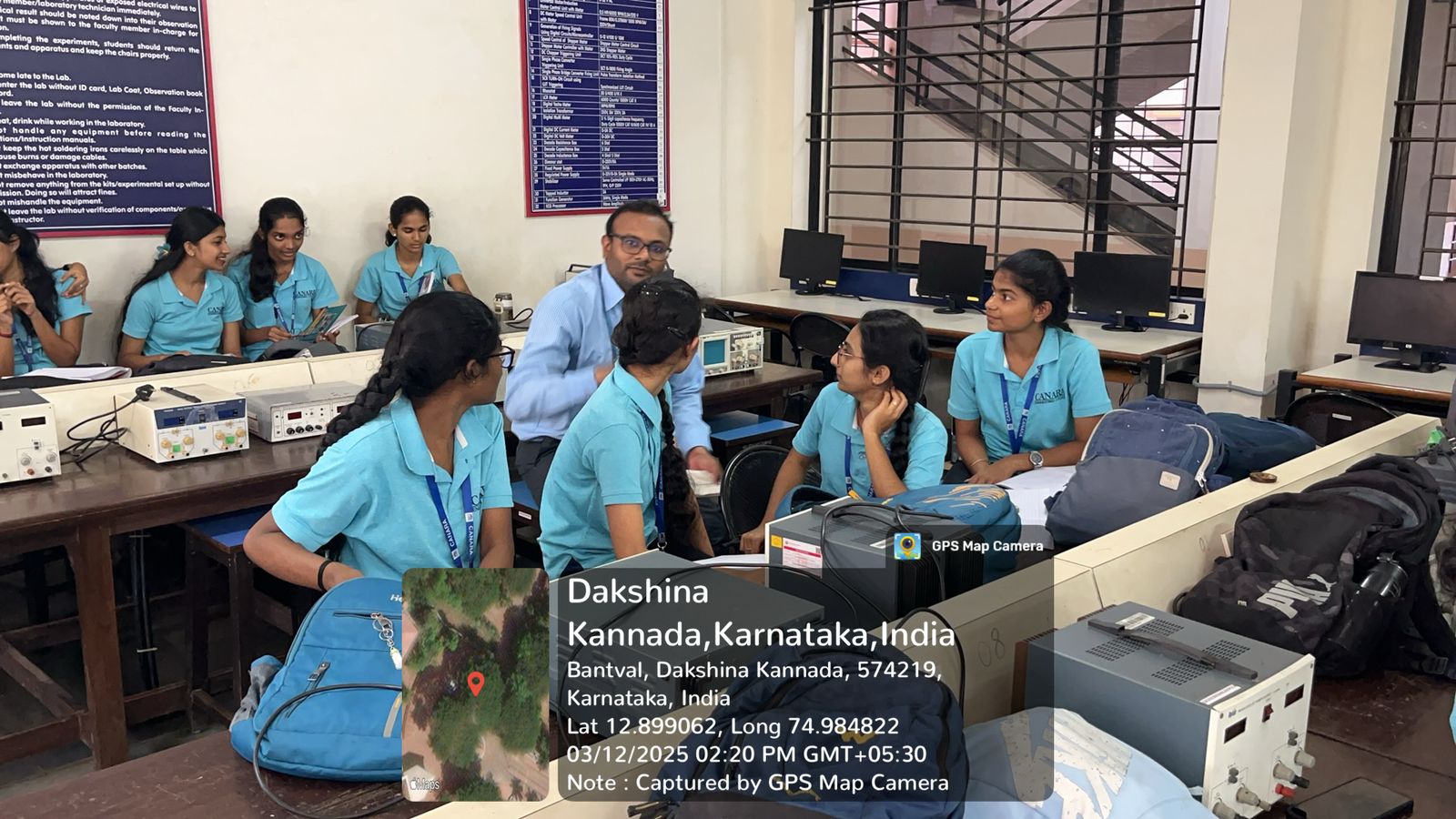
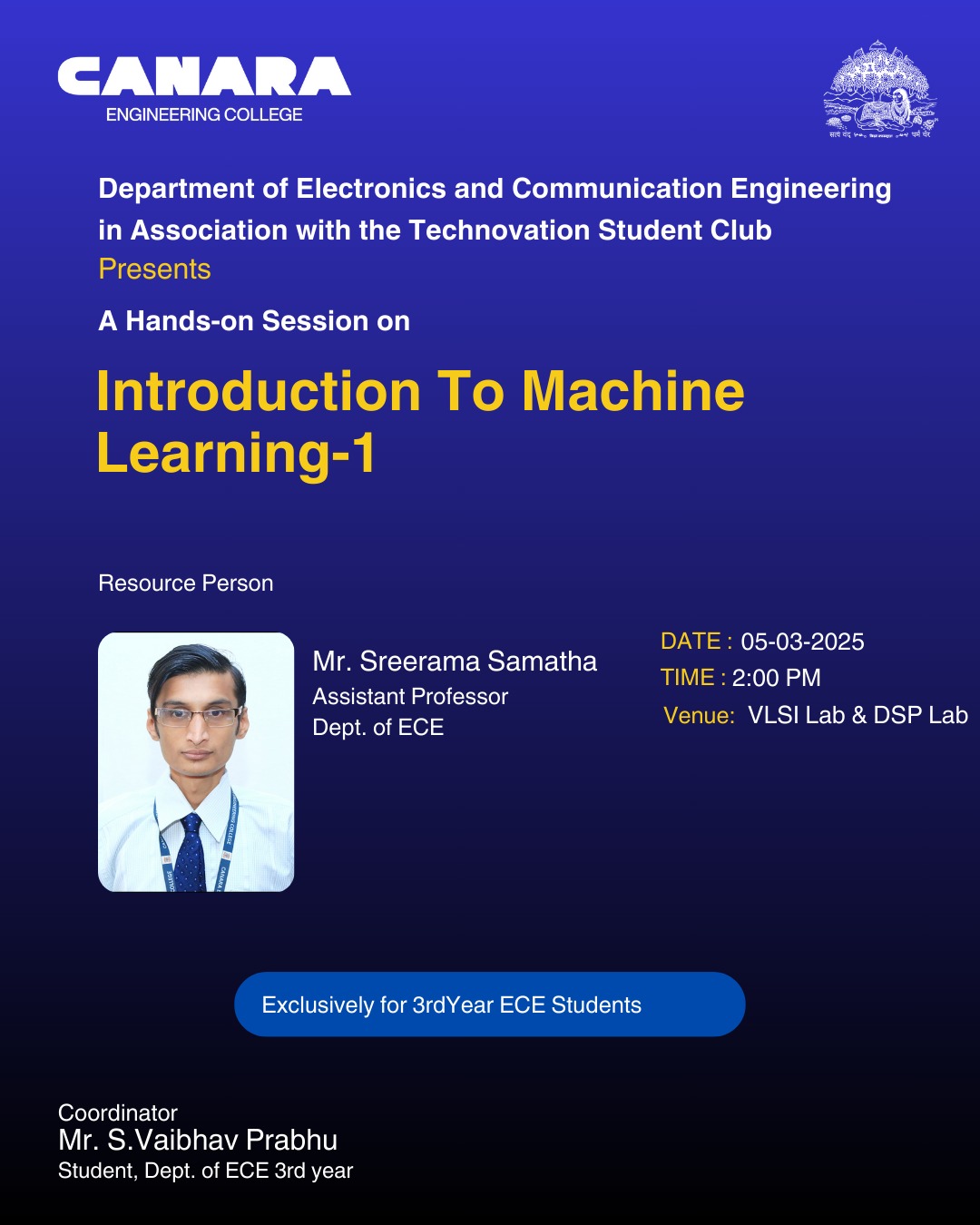
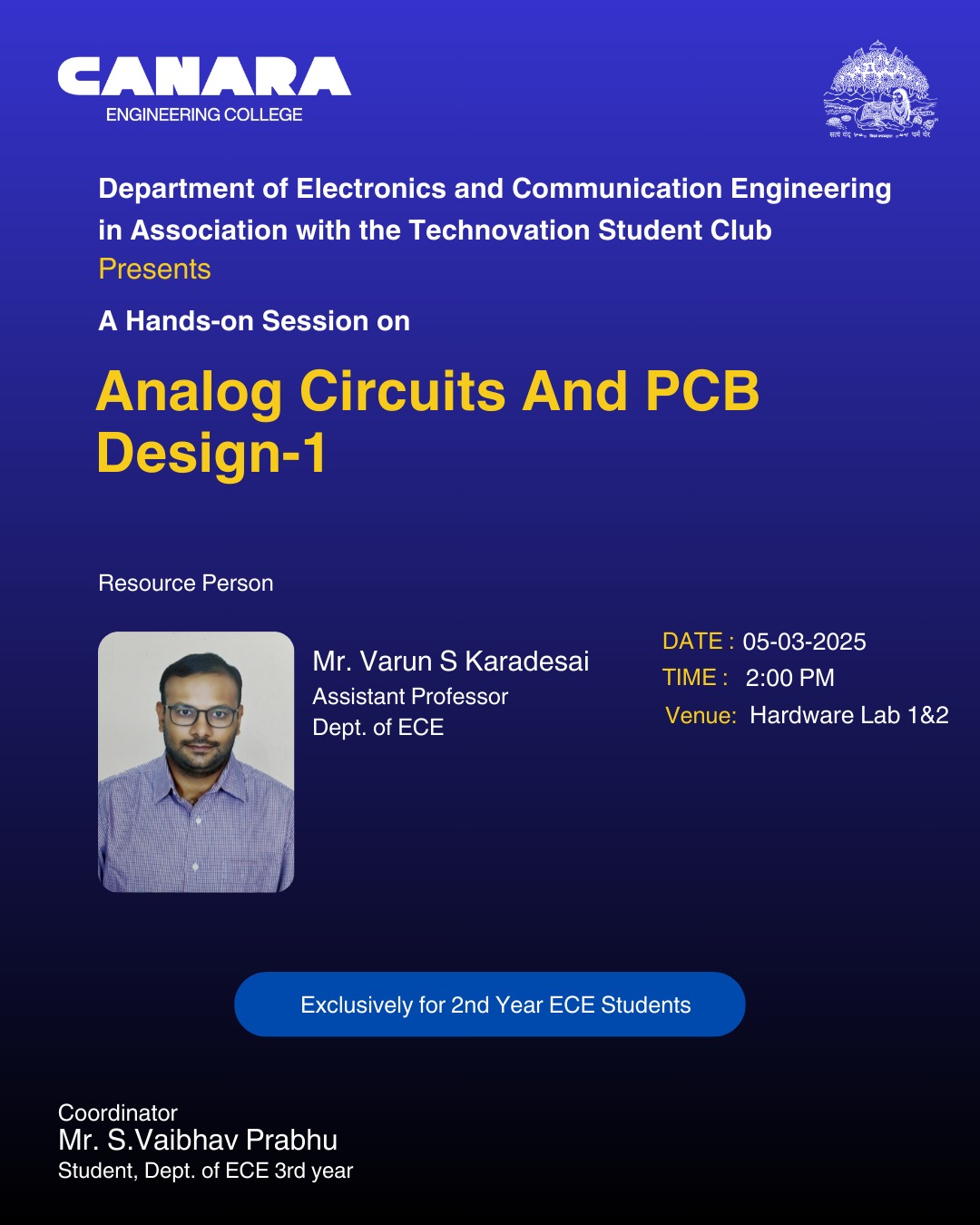
.jpg)
